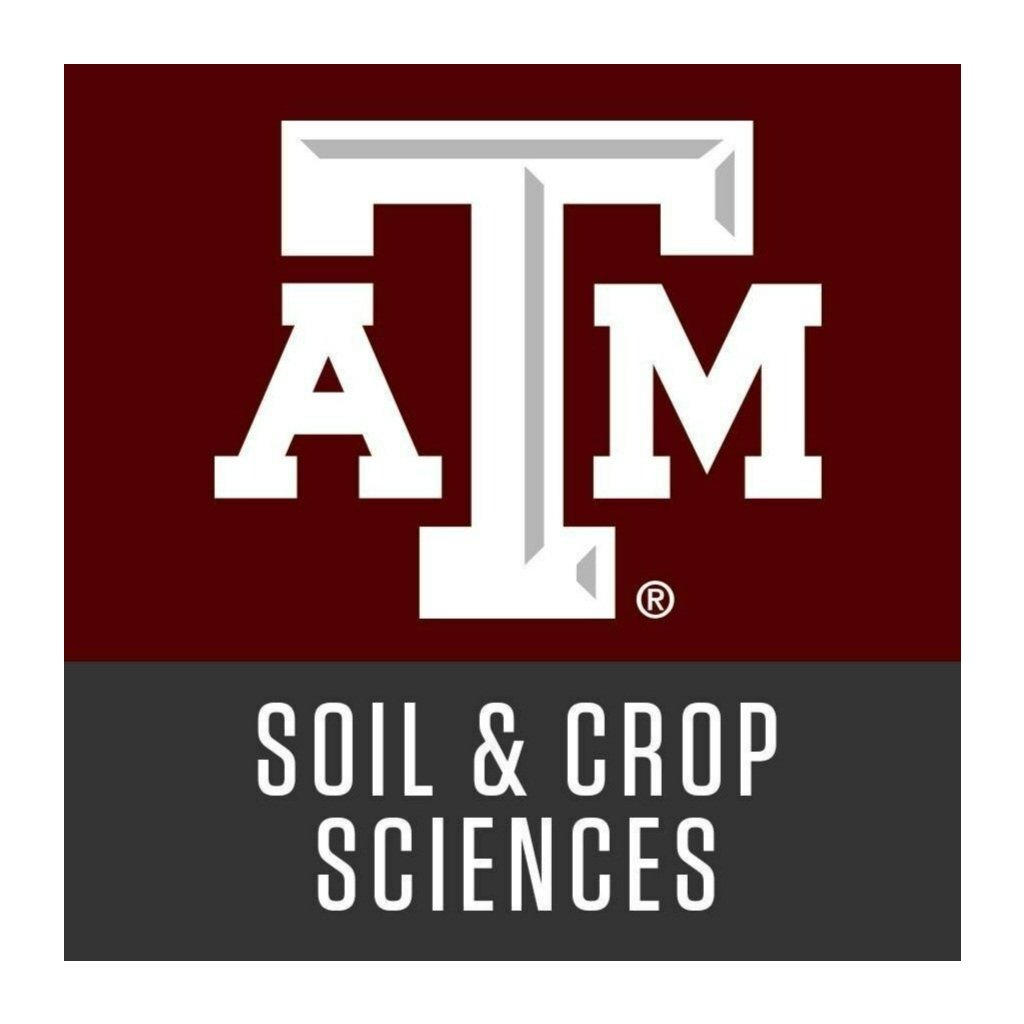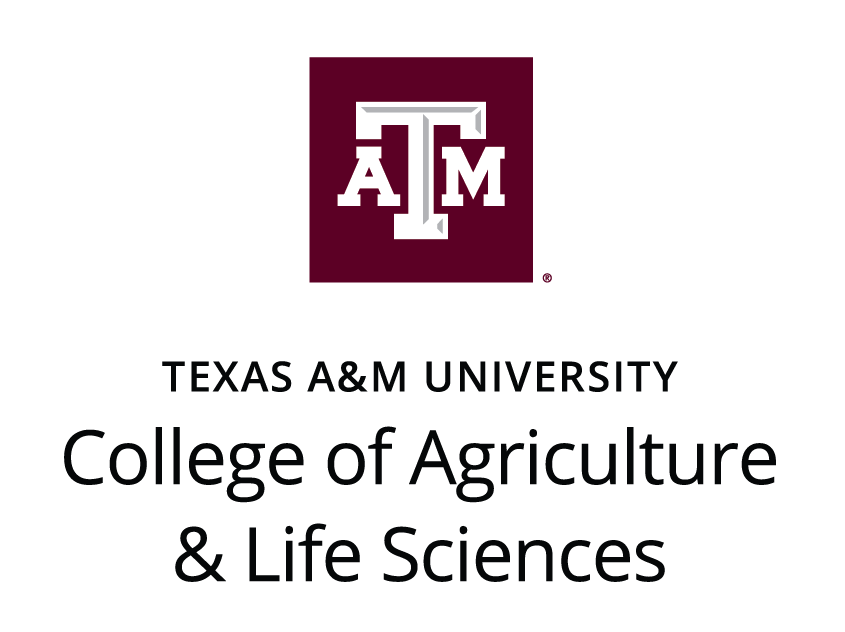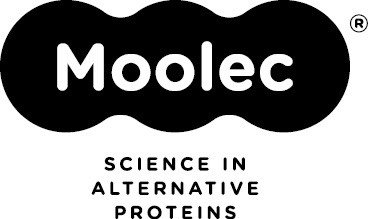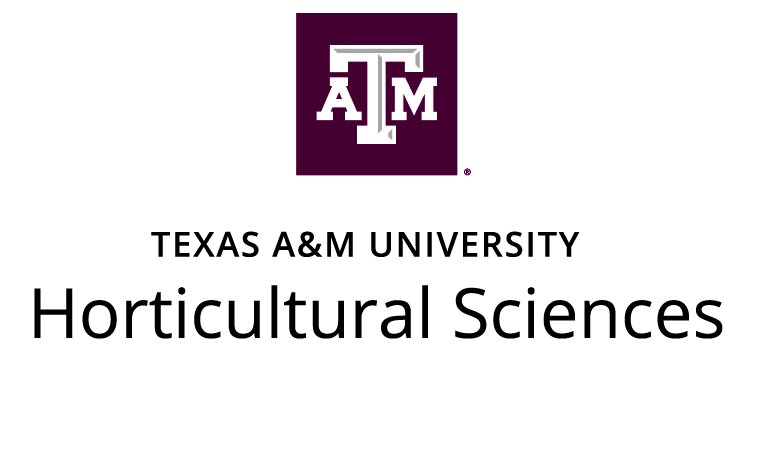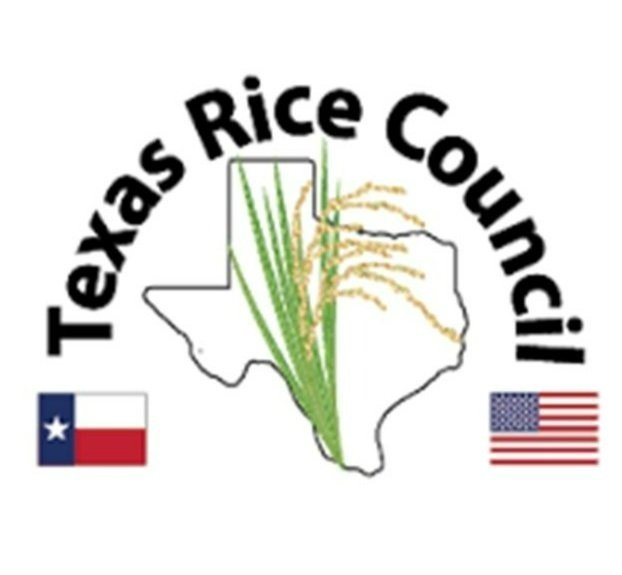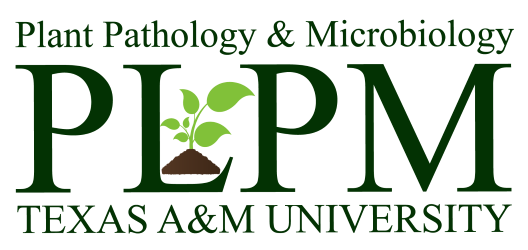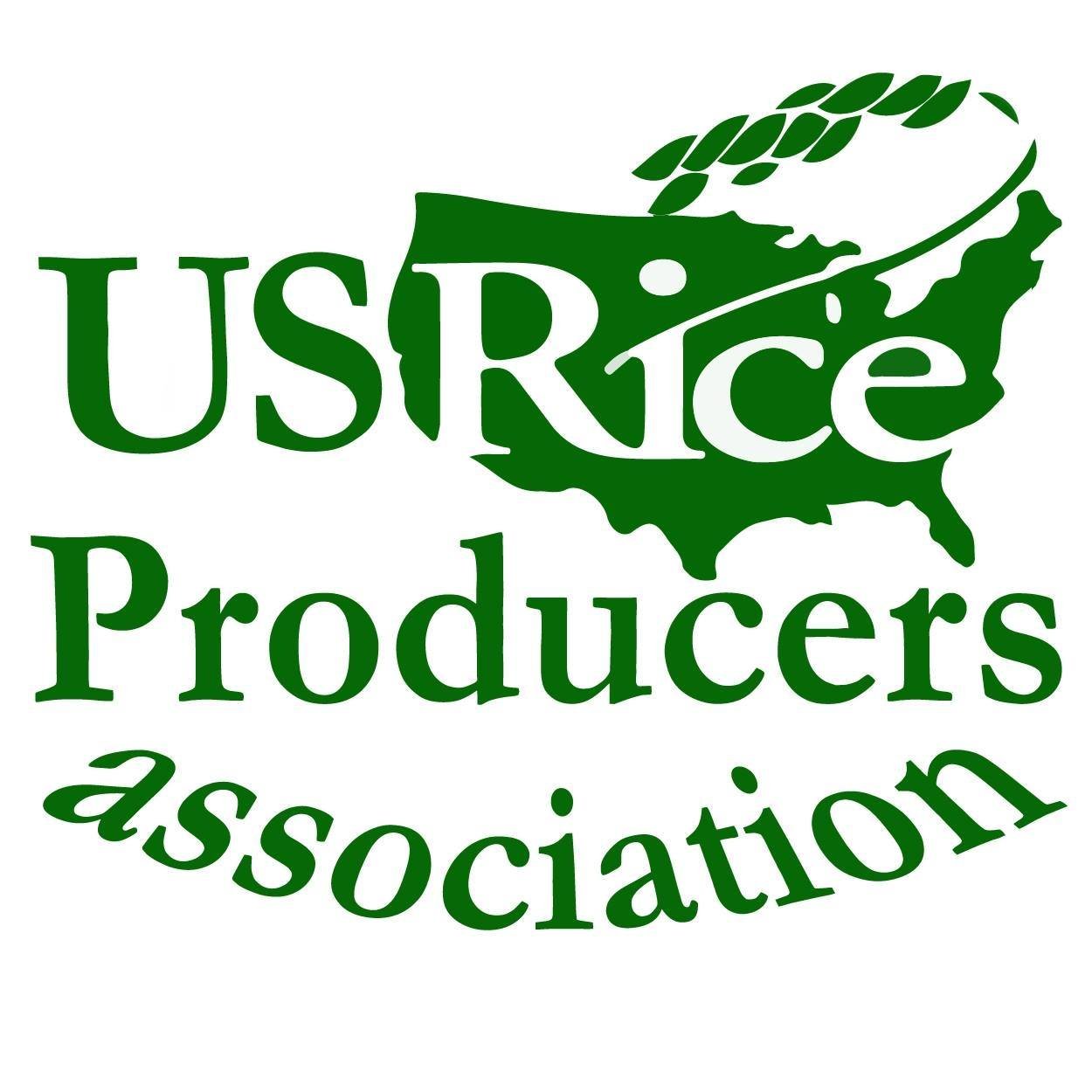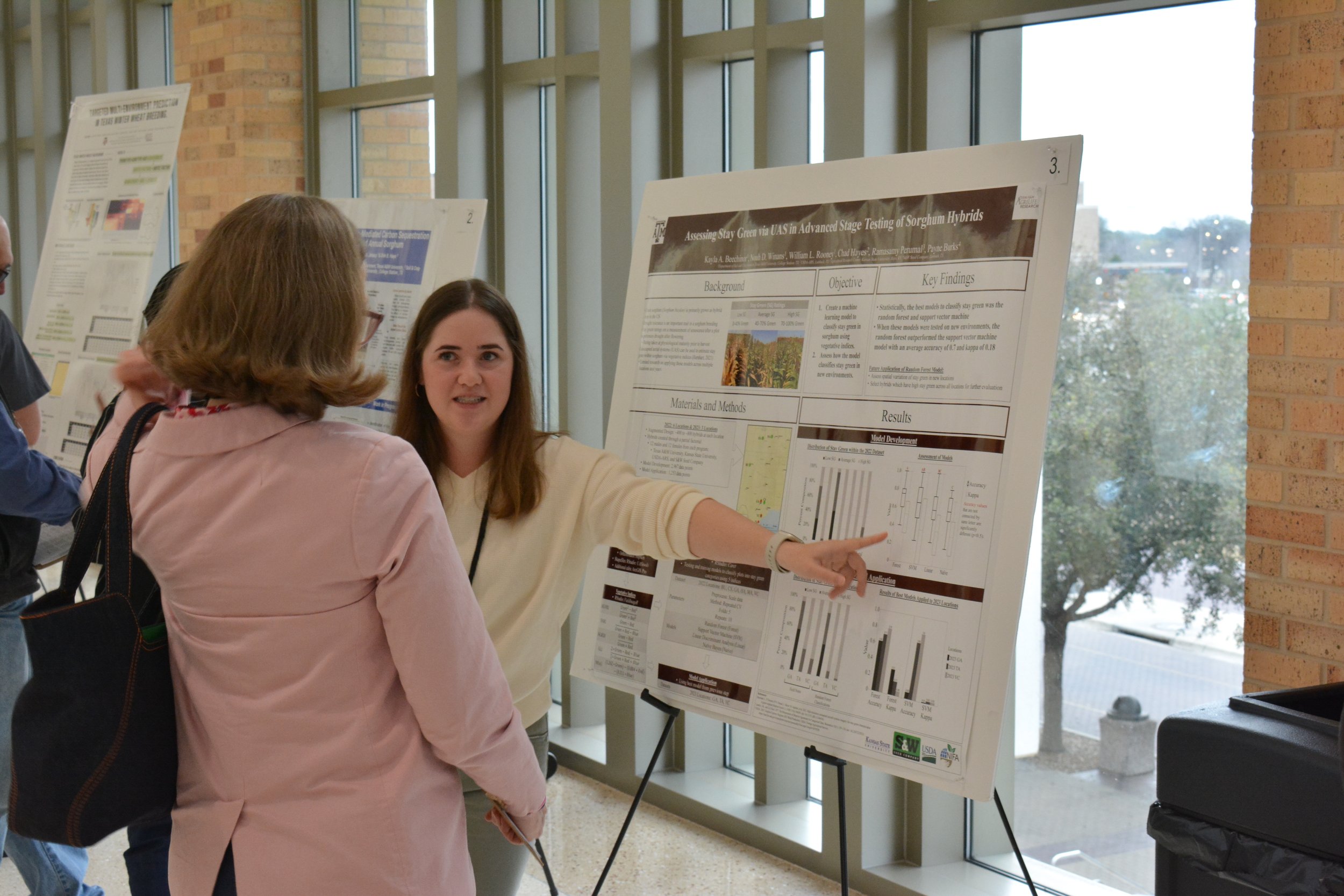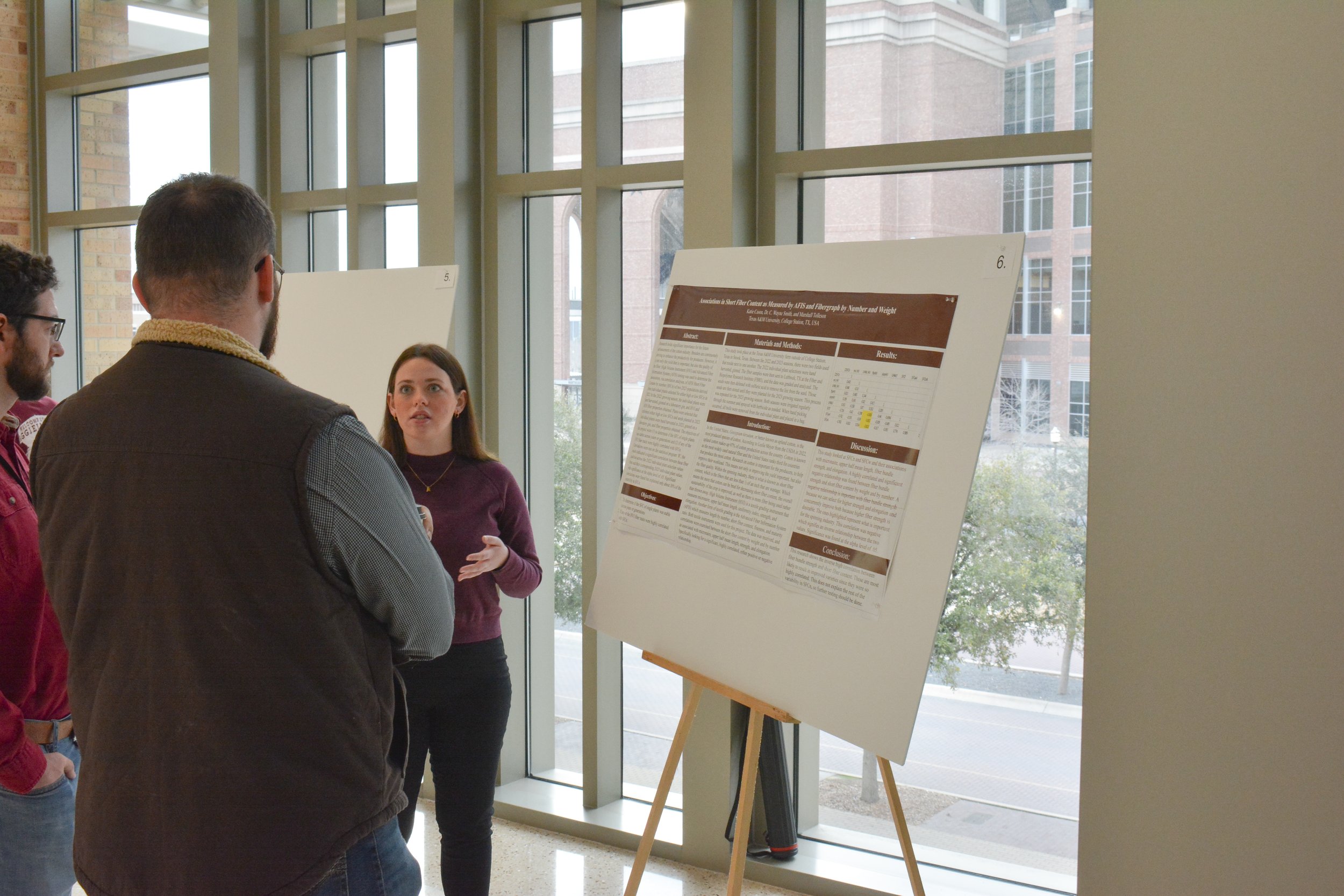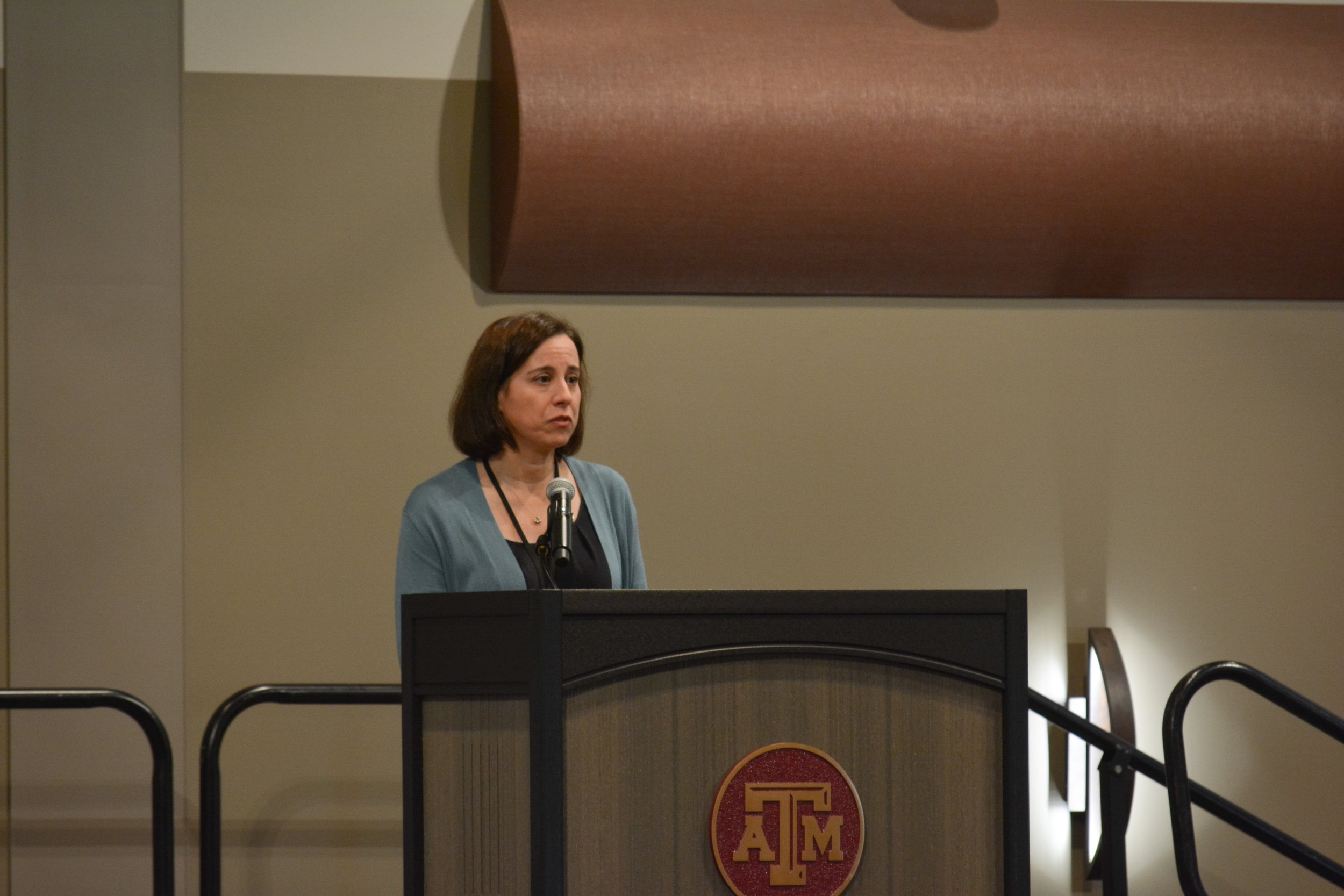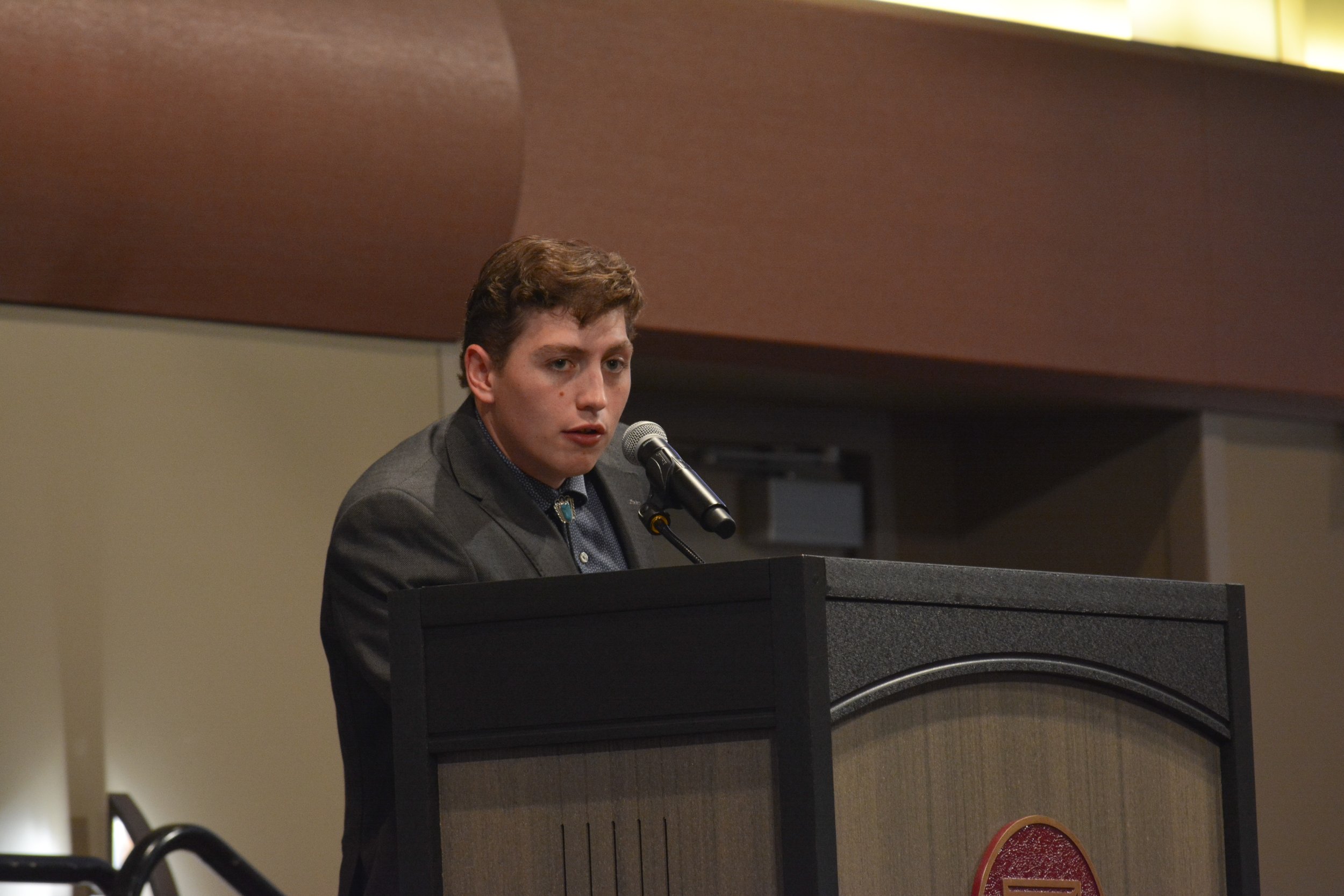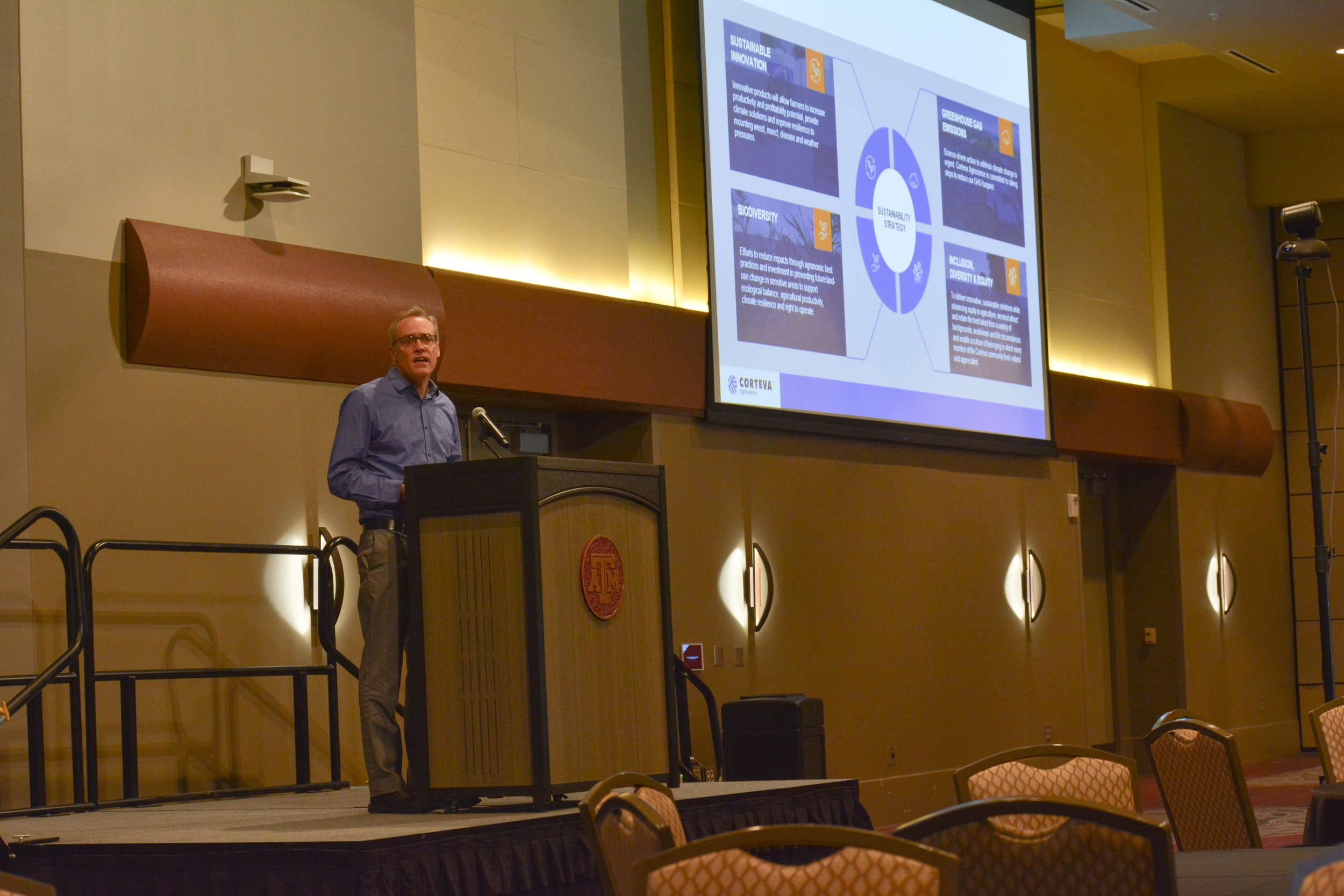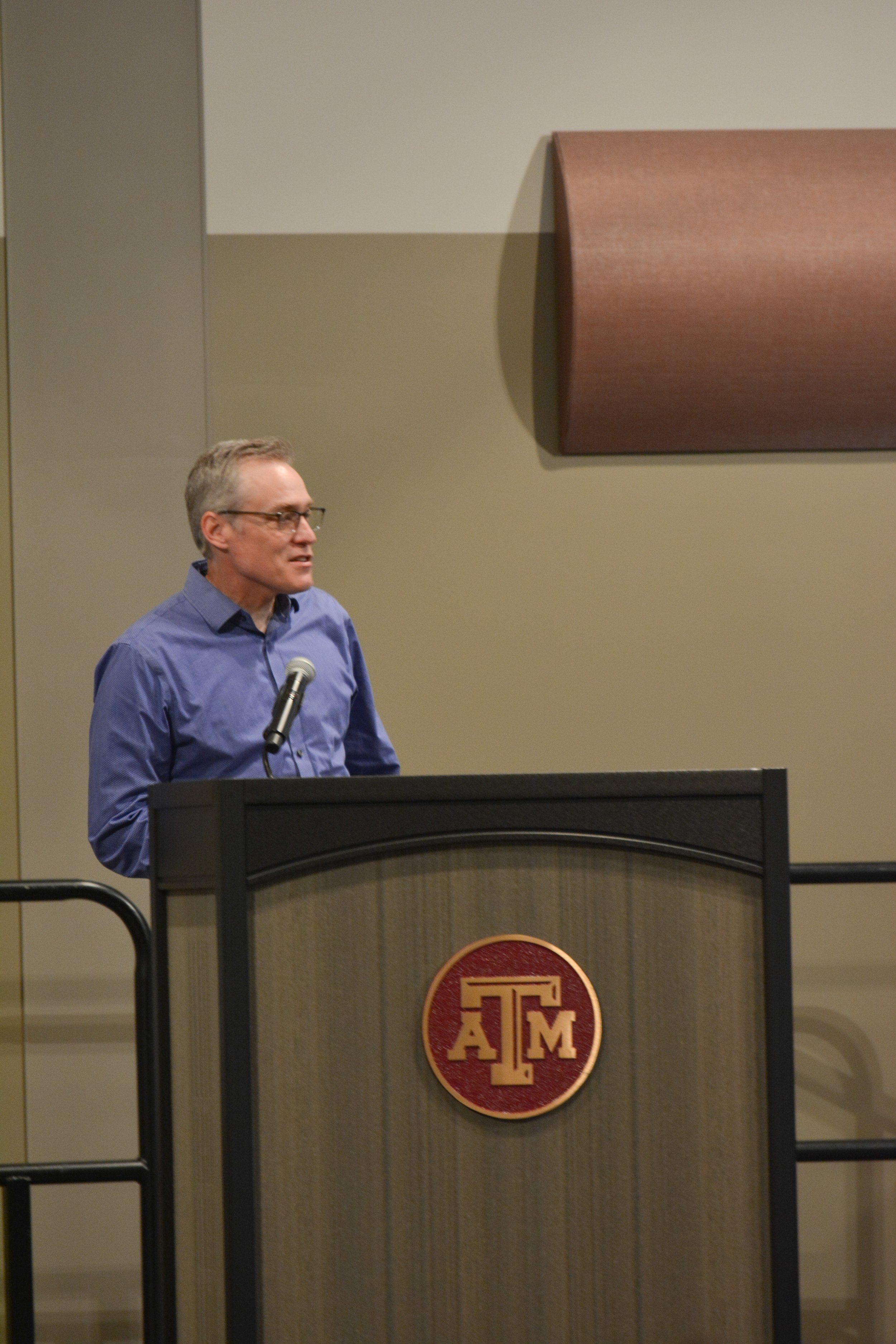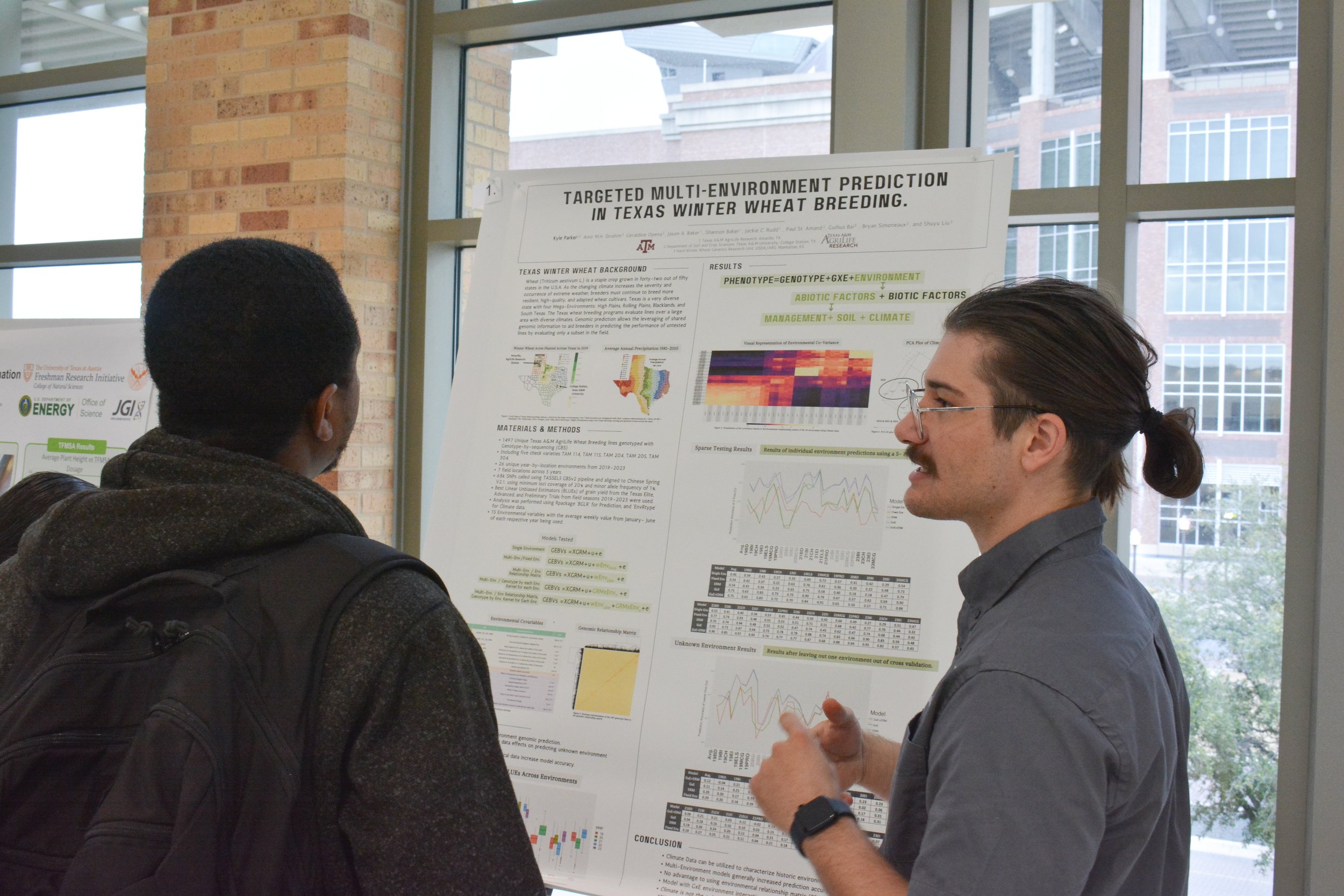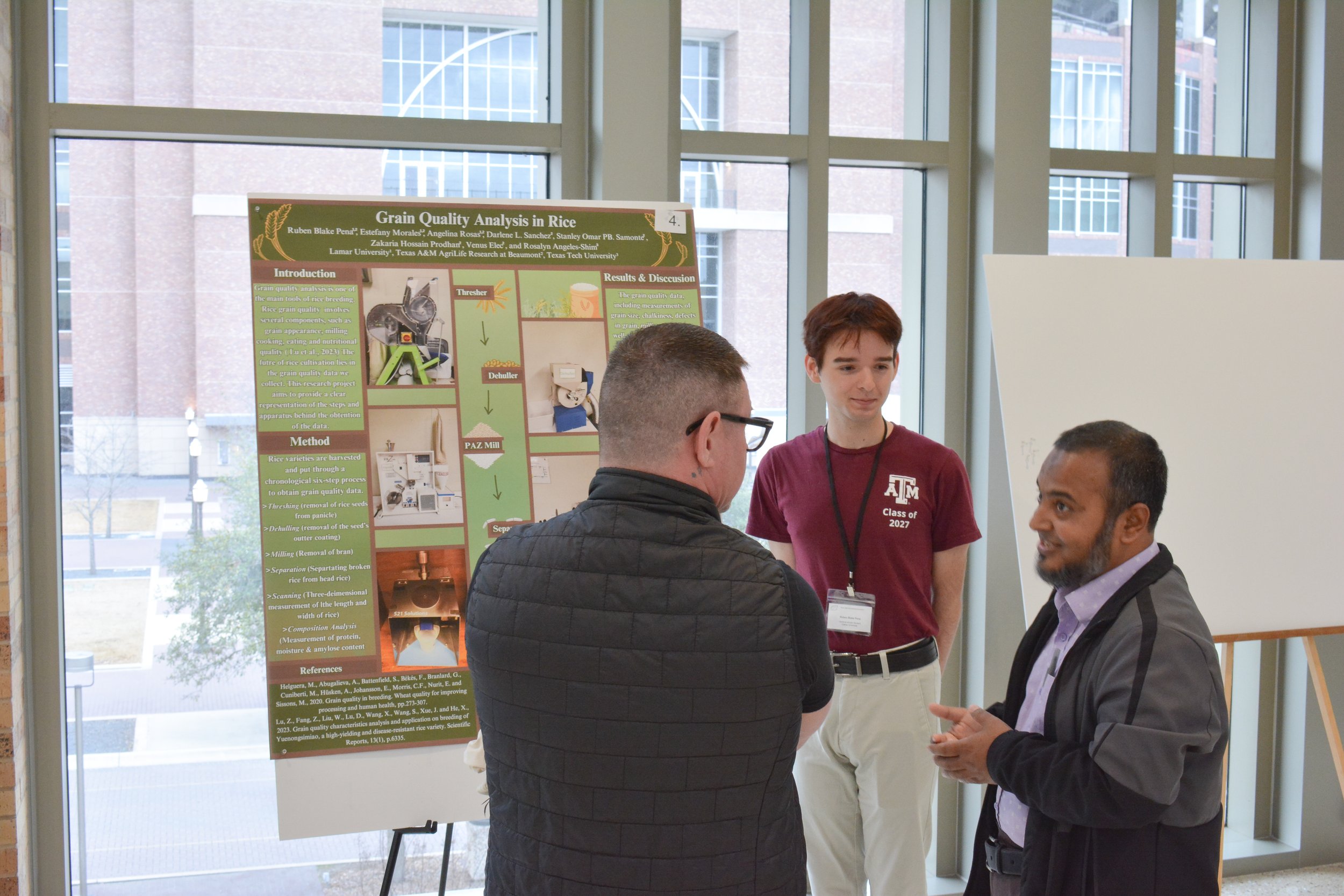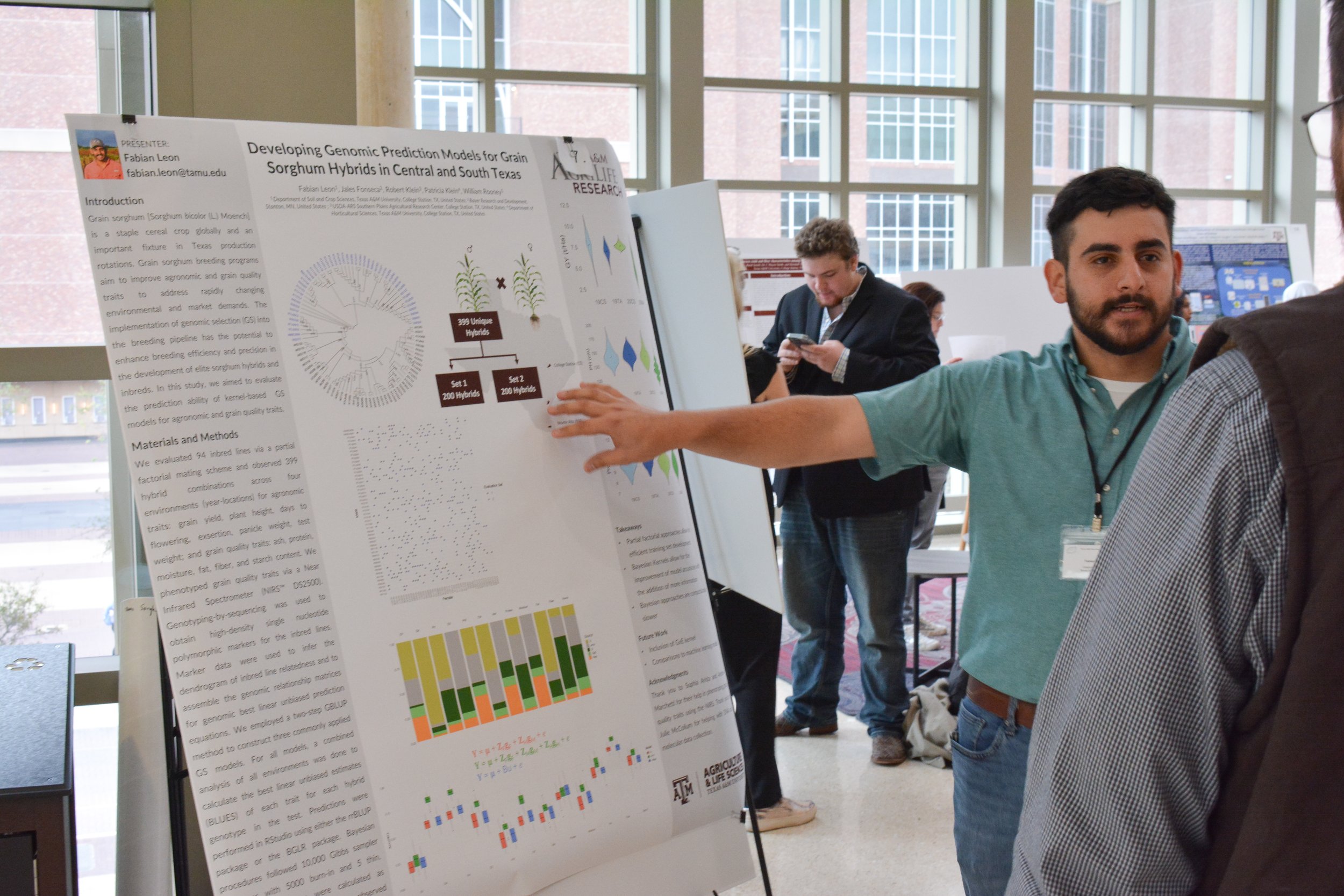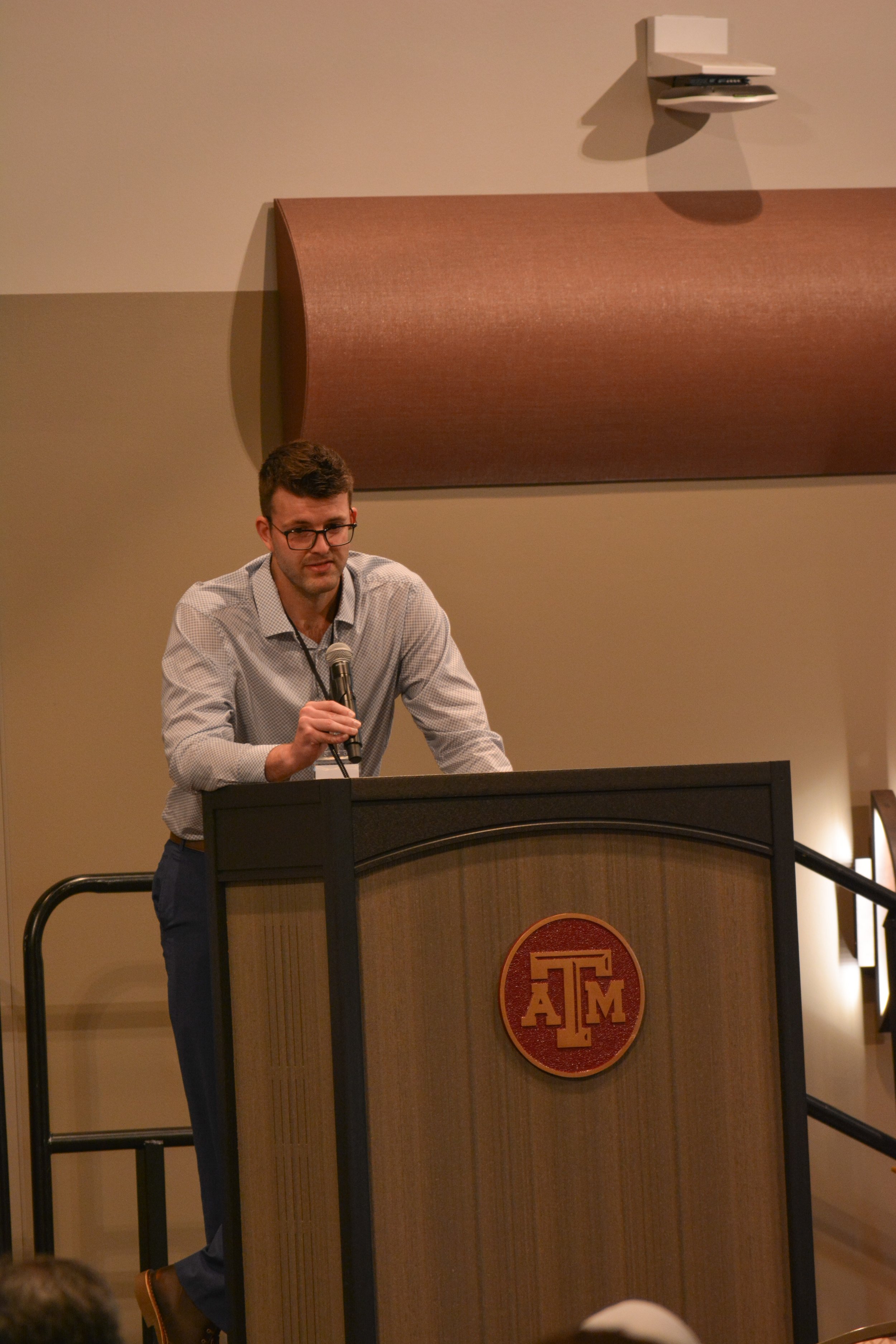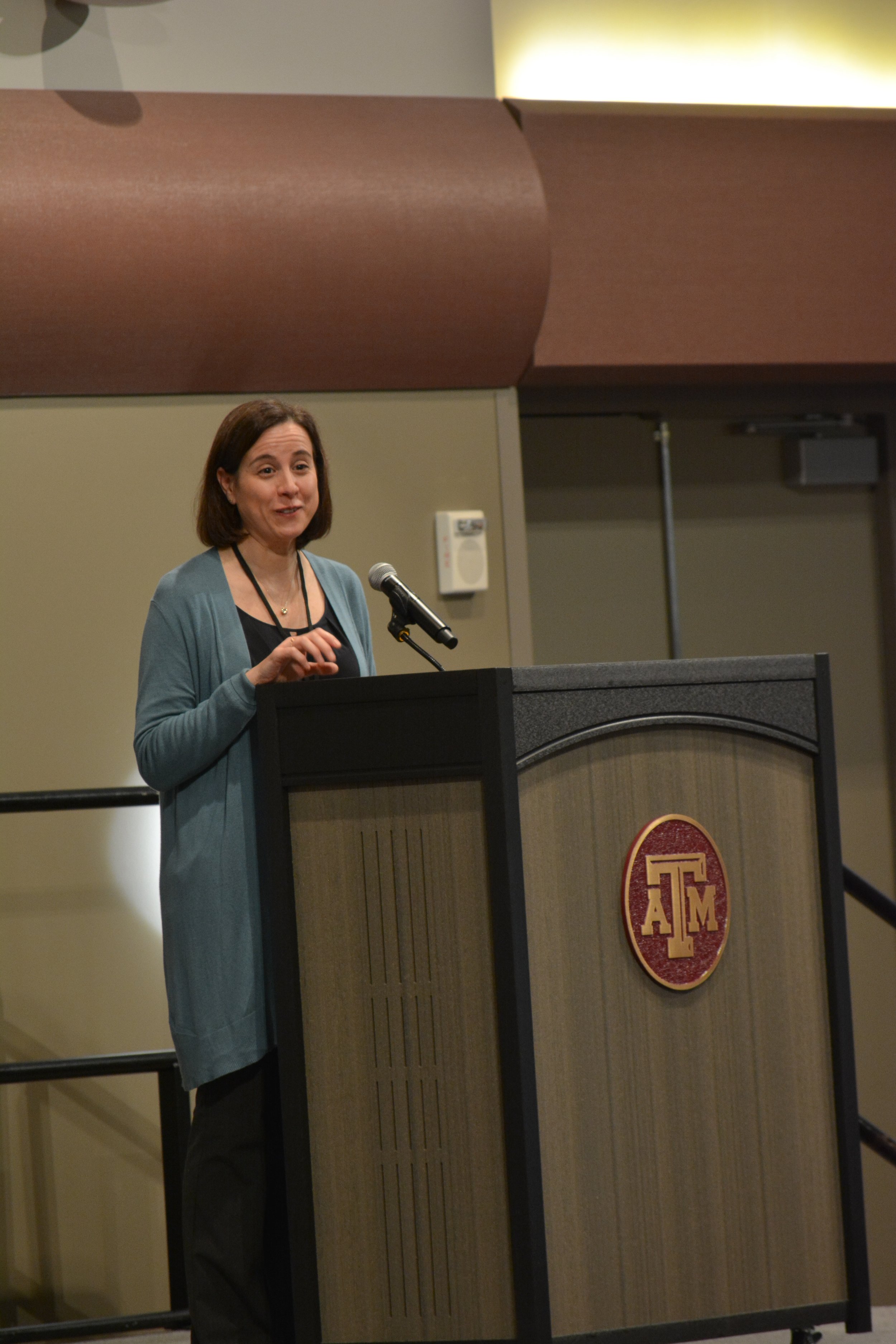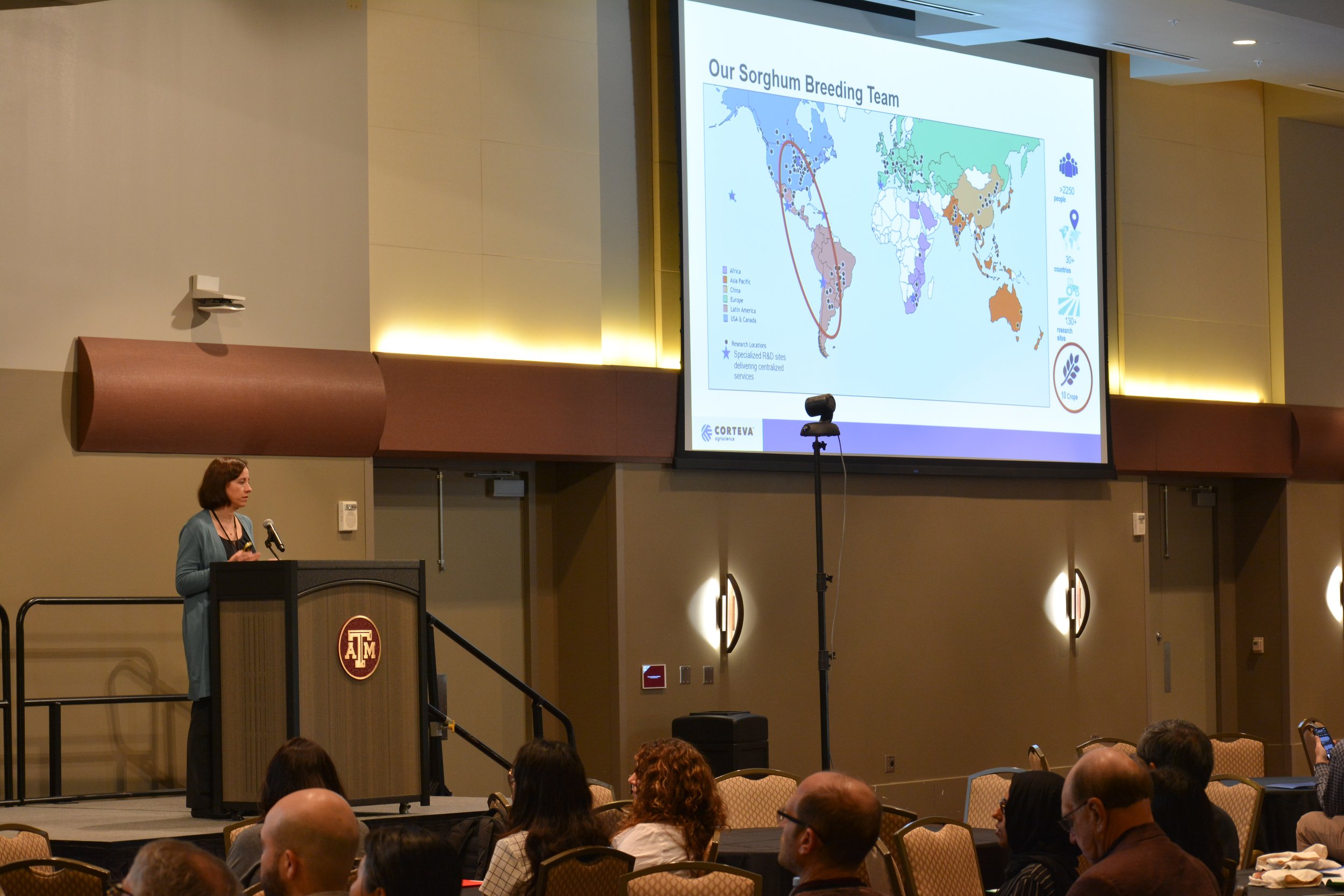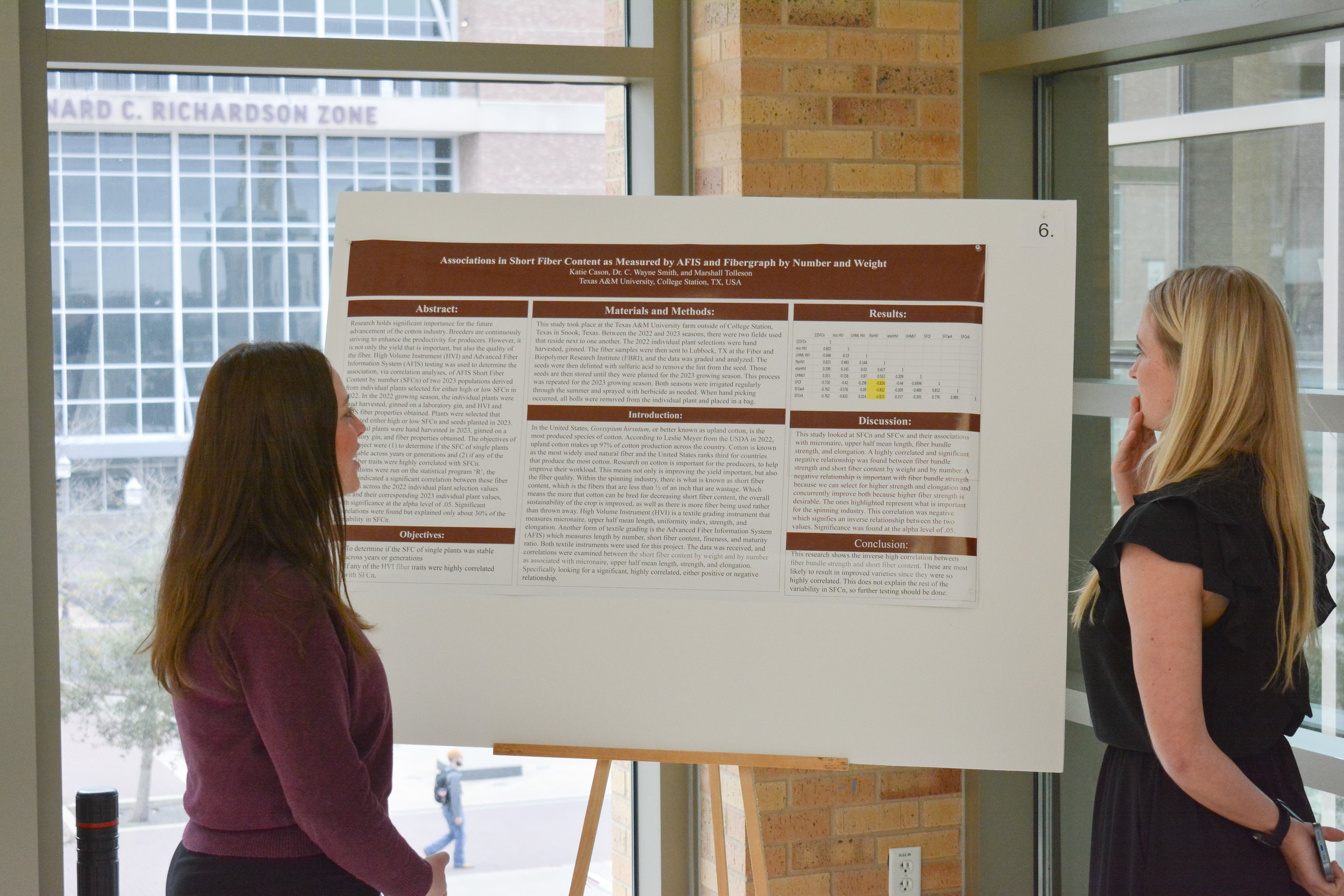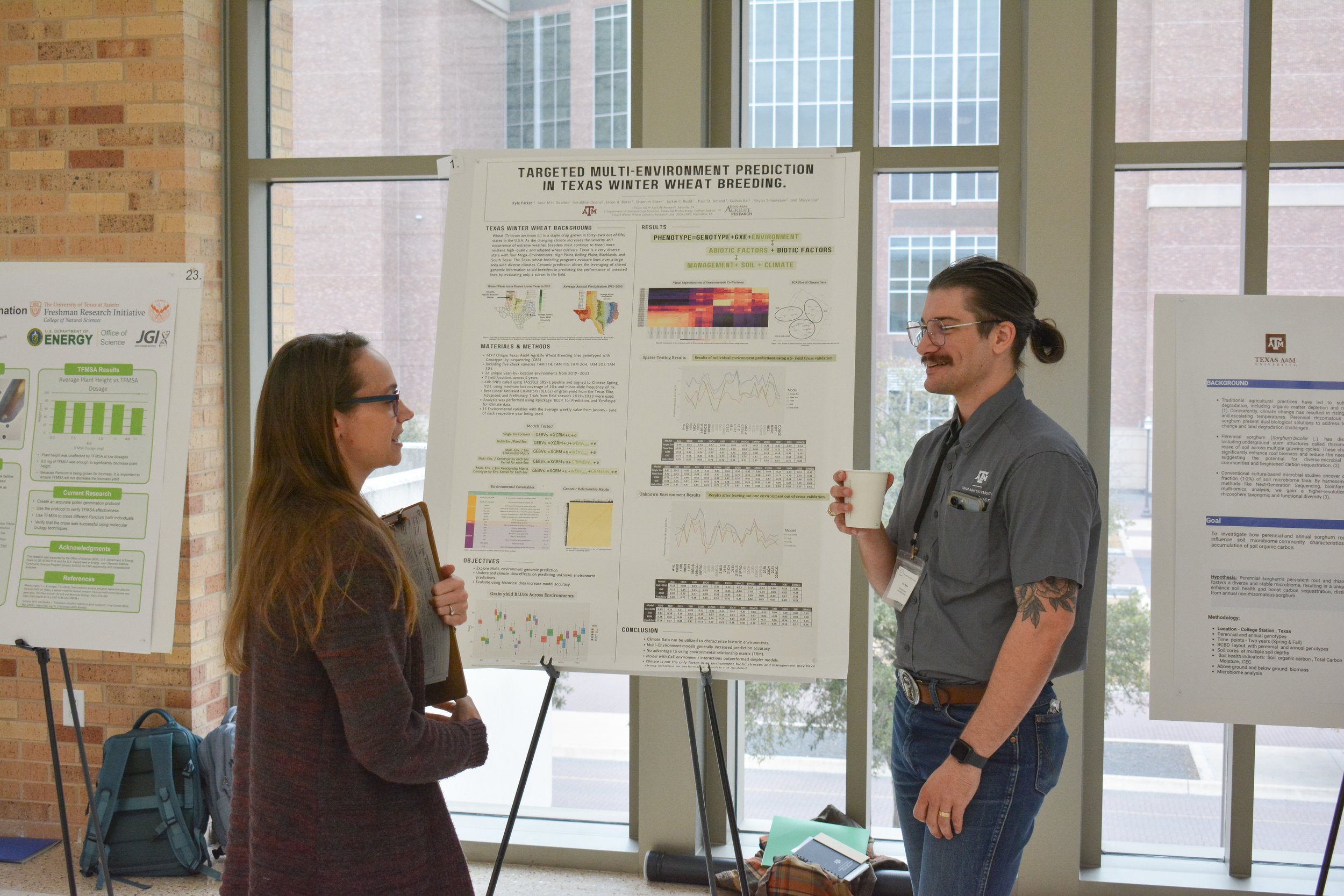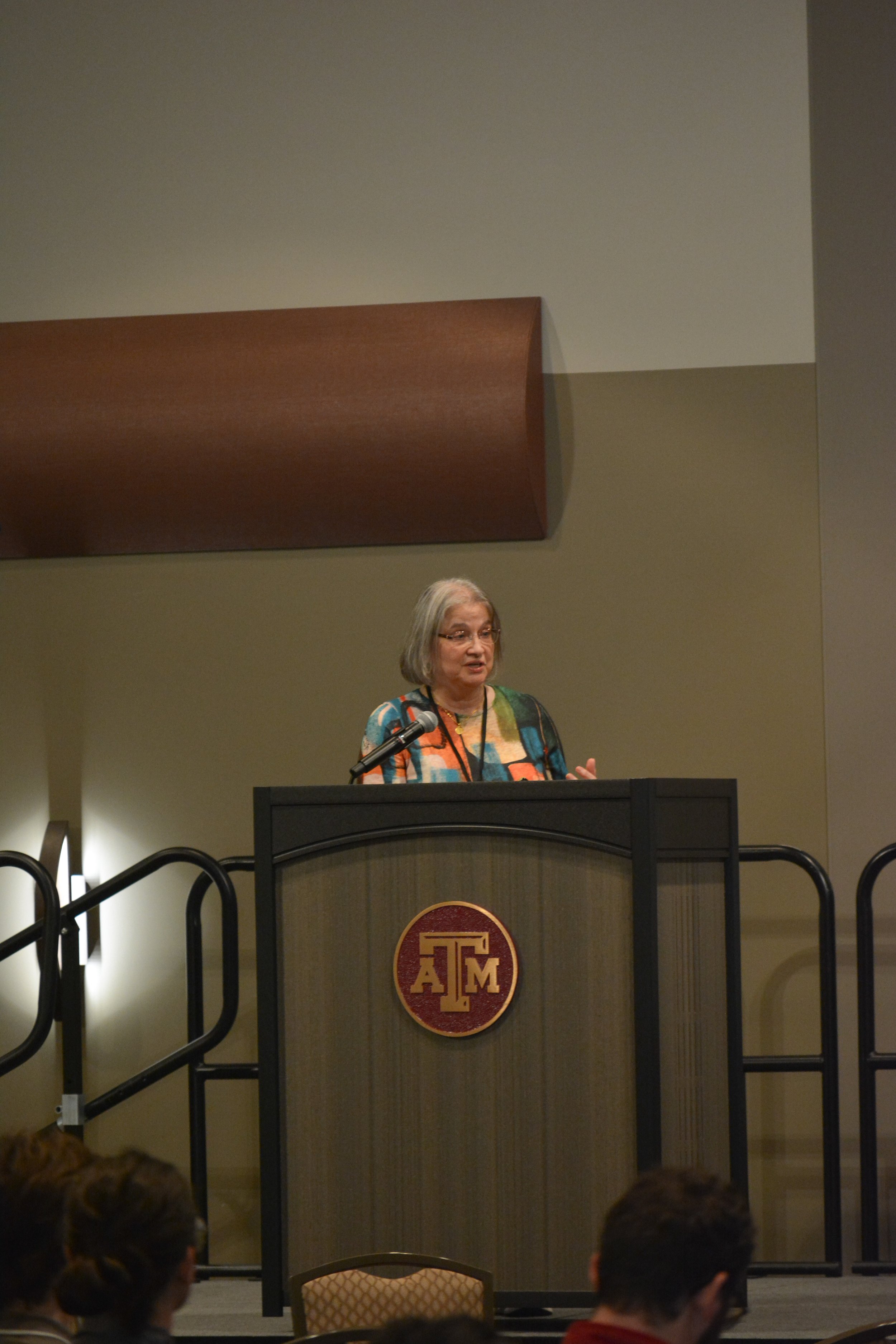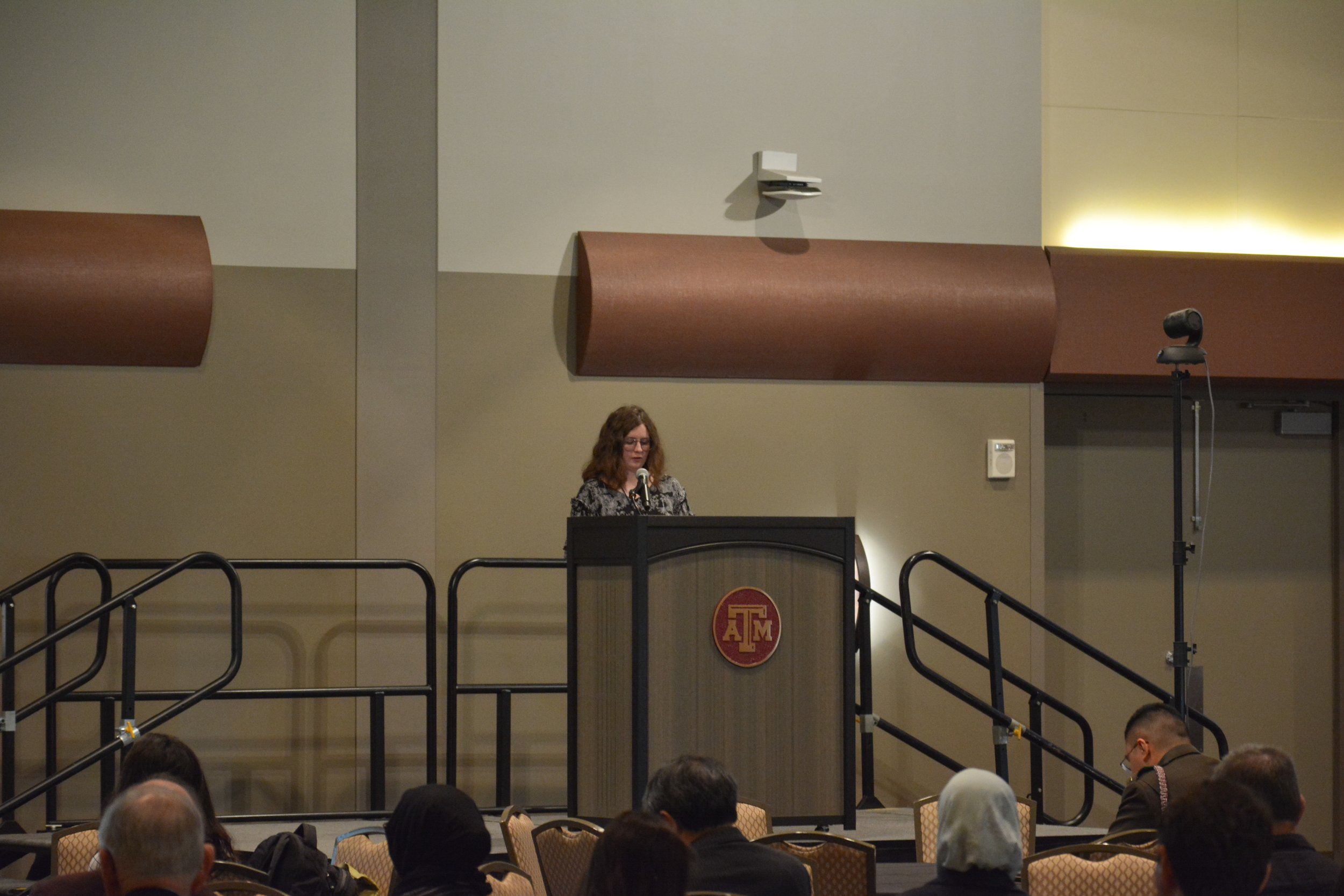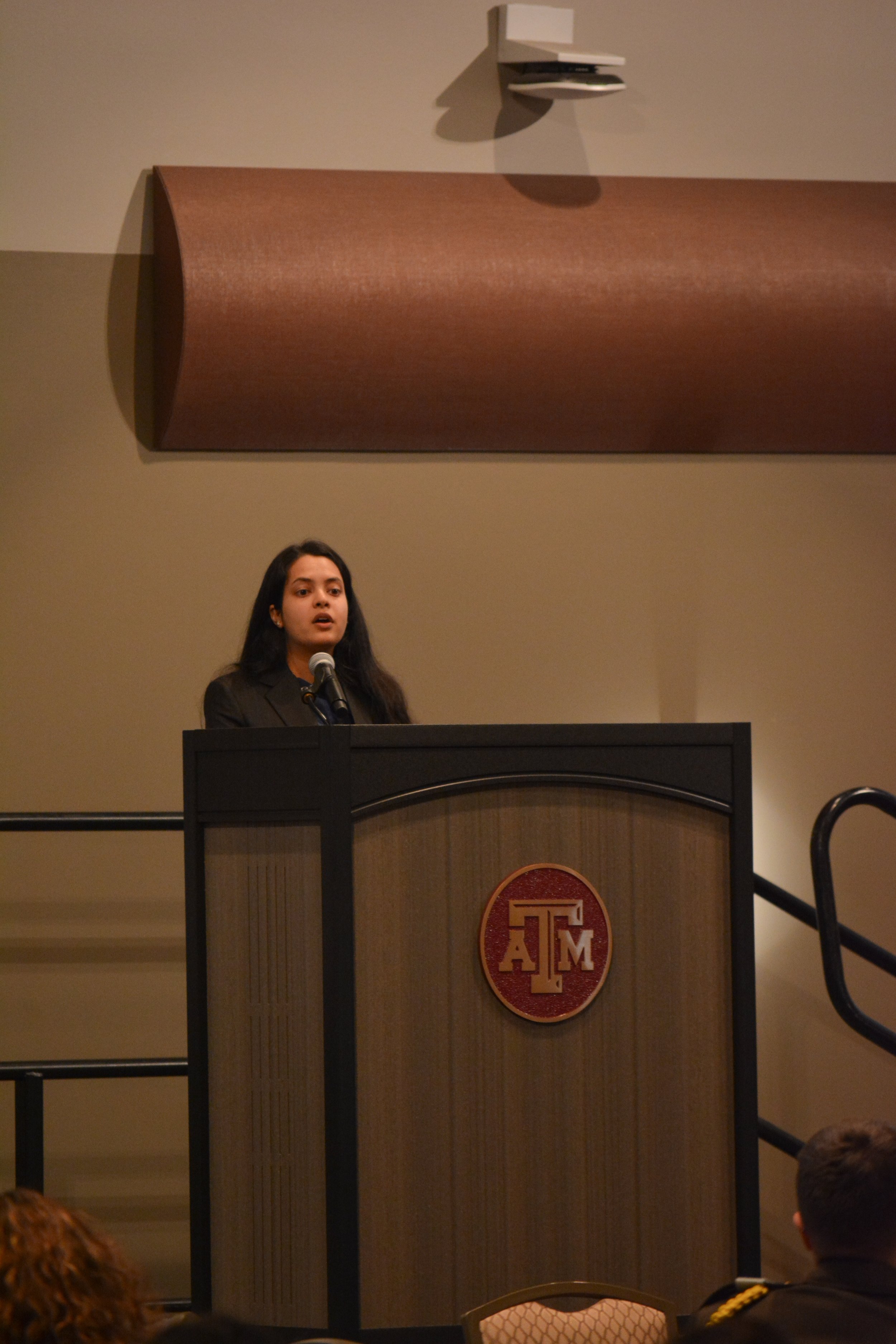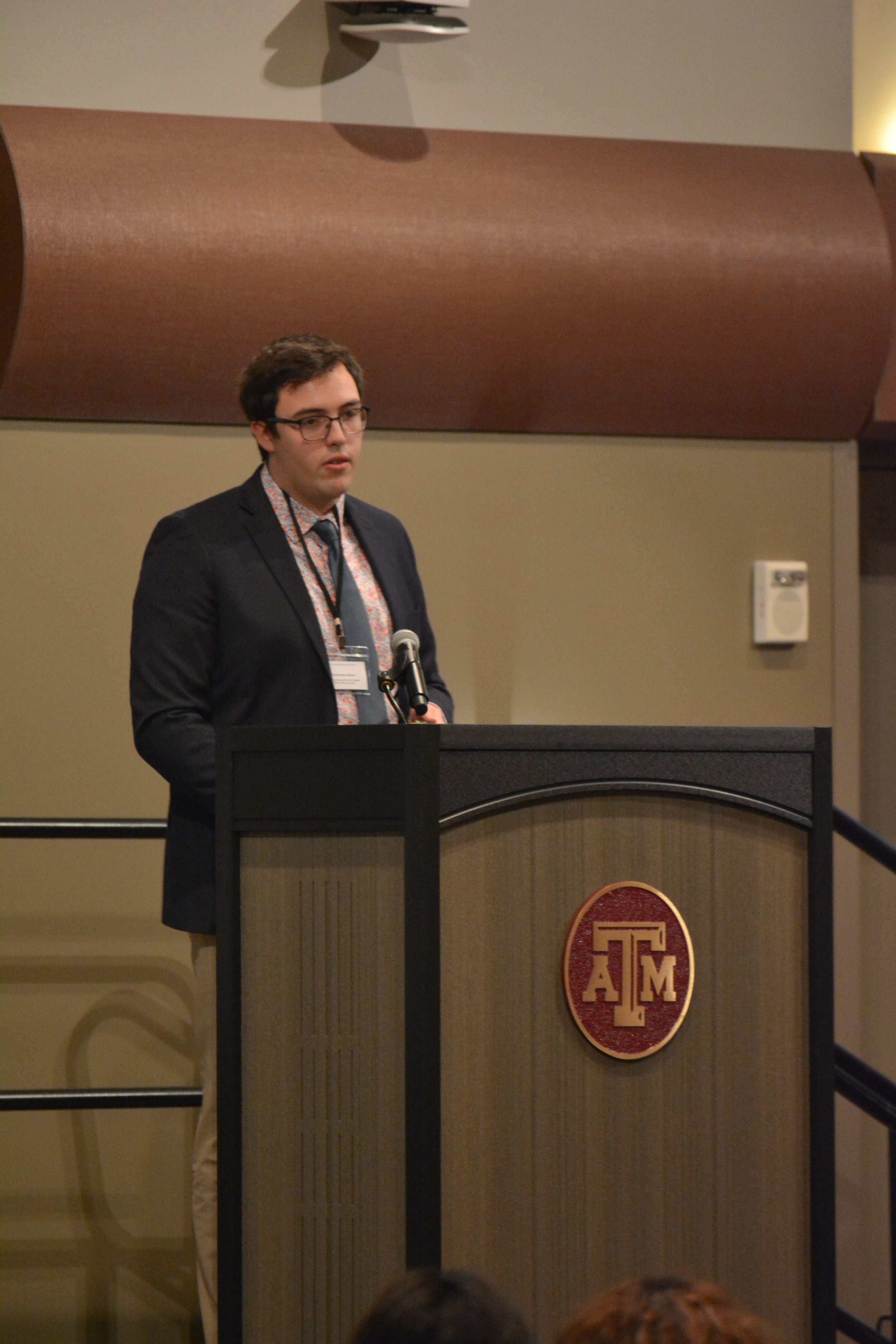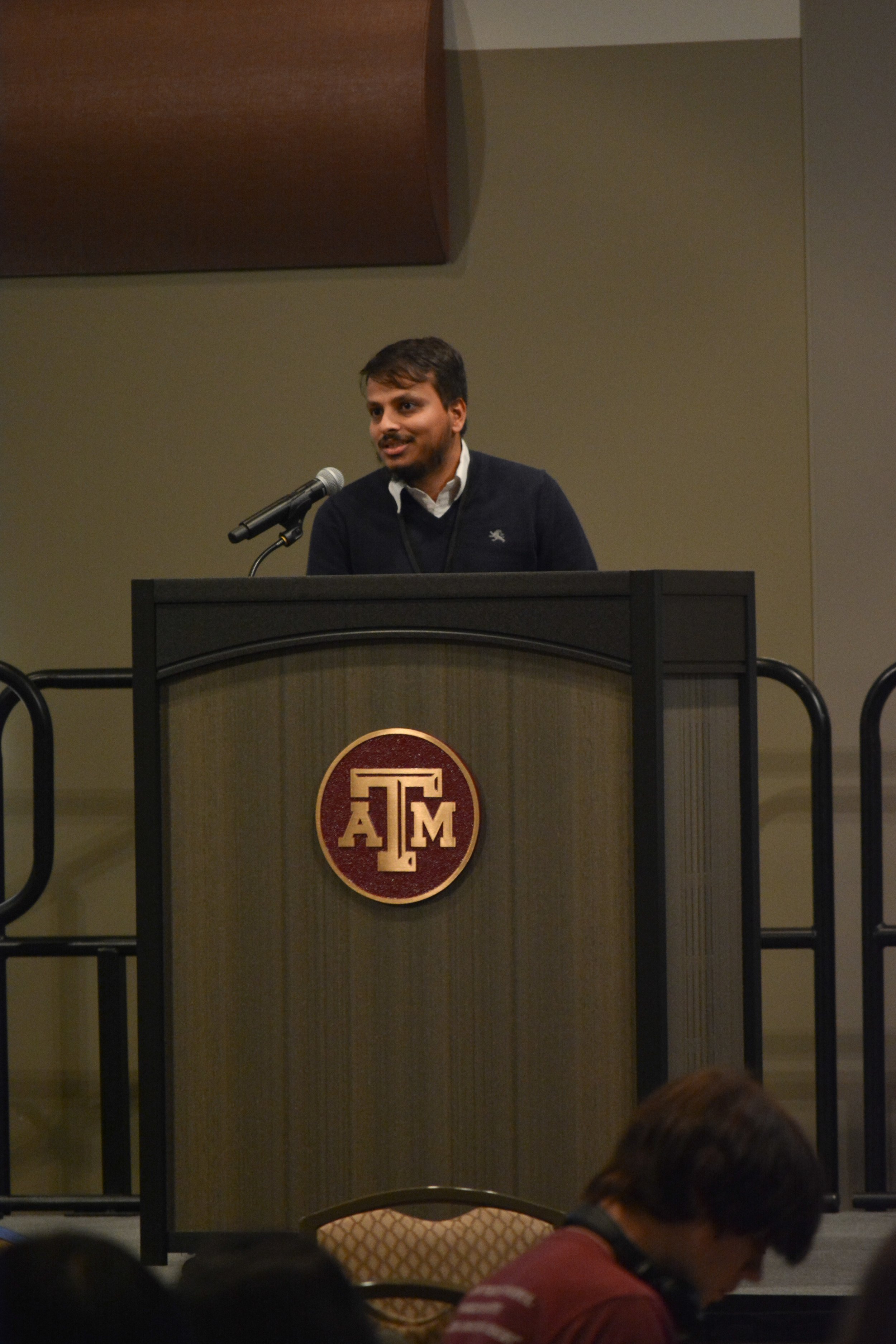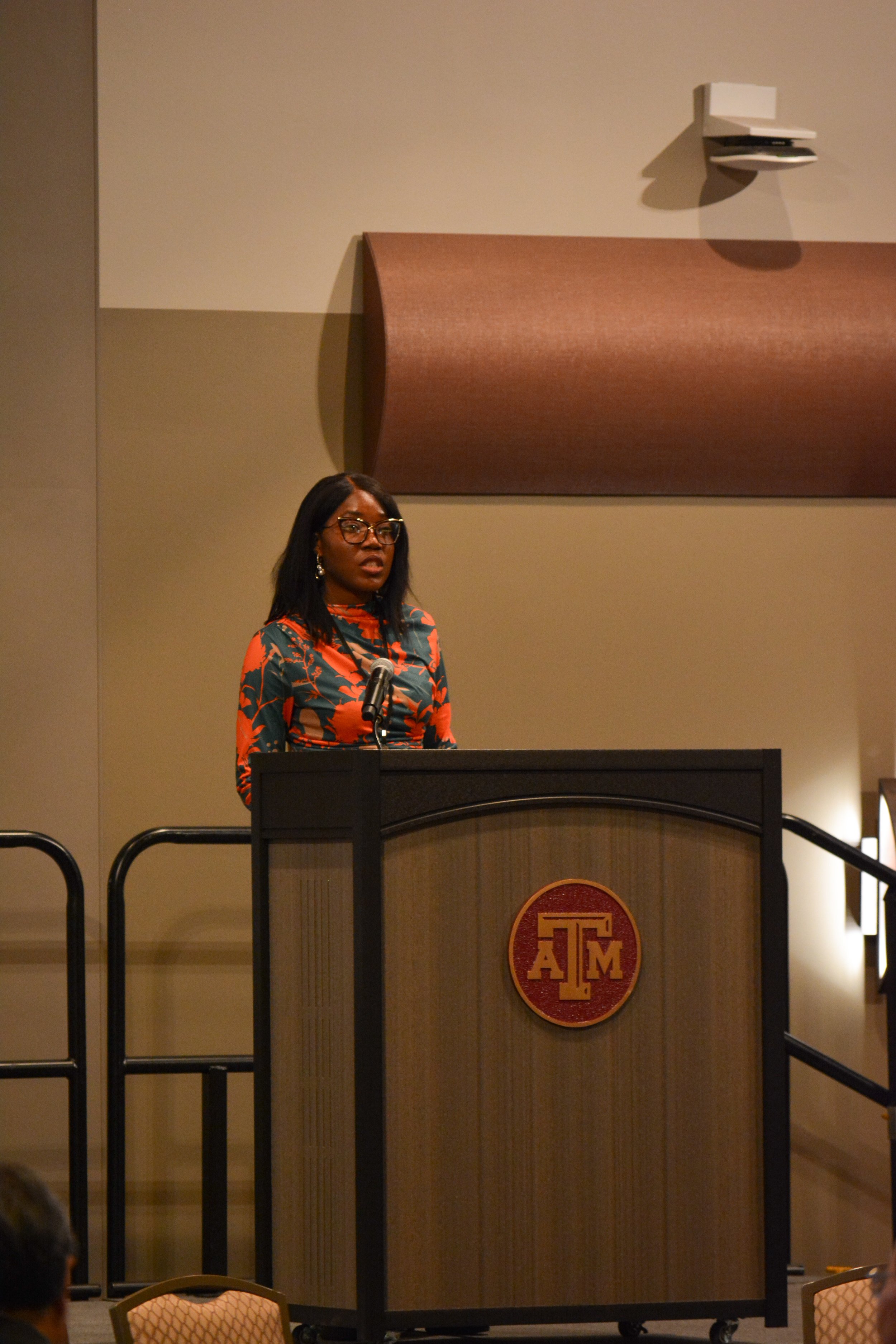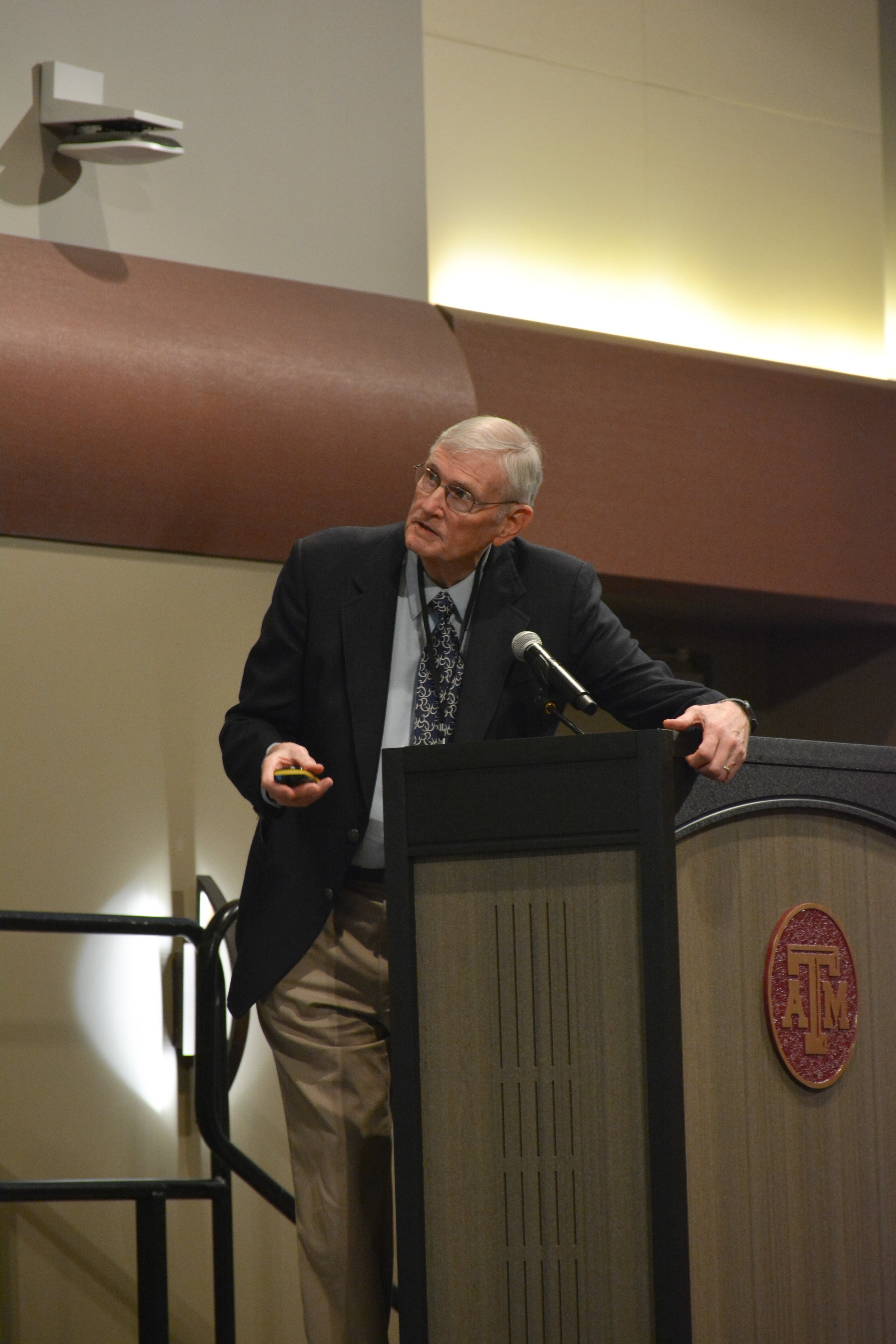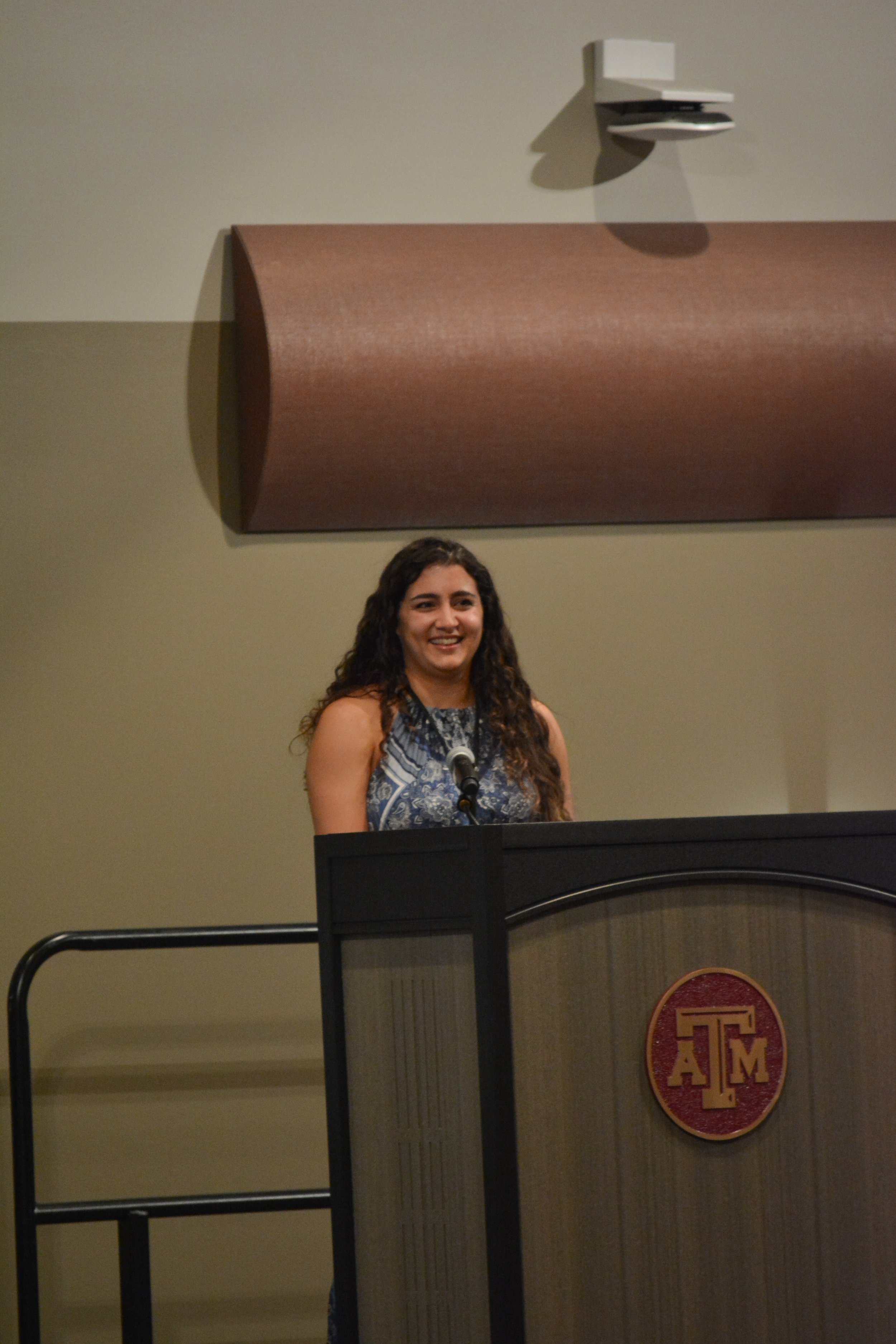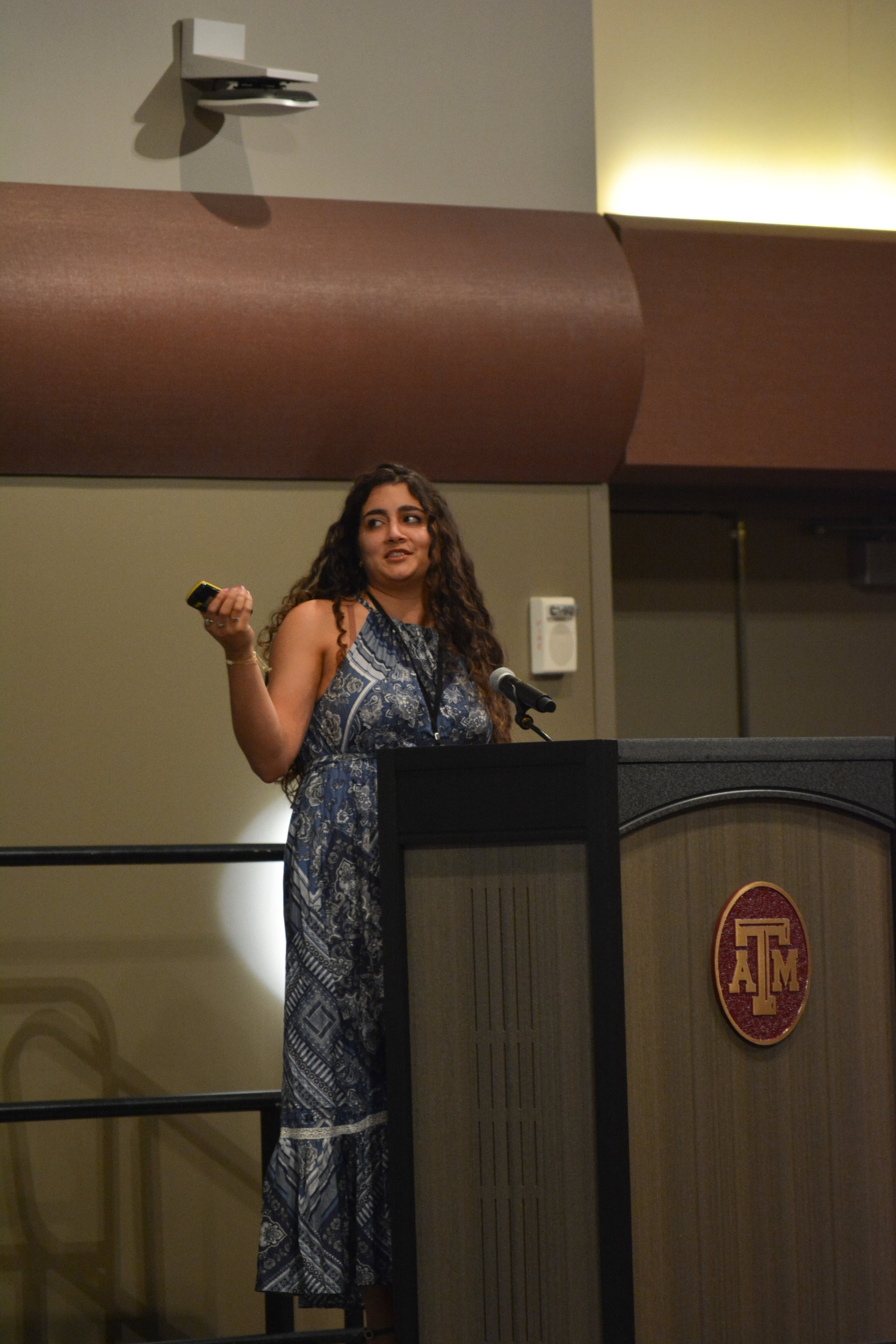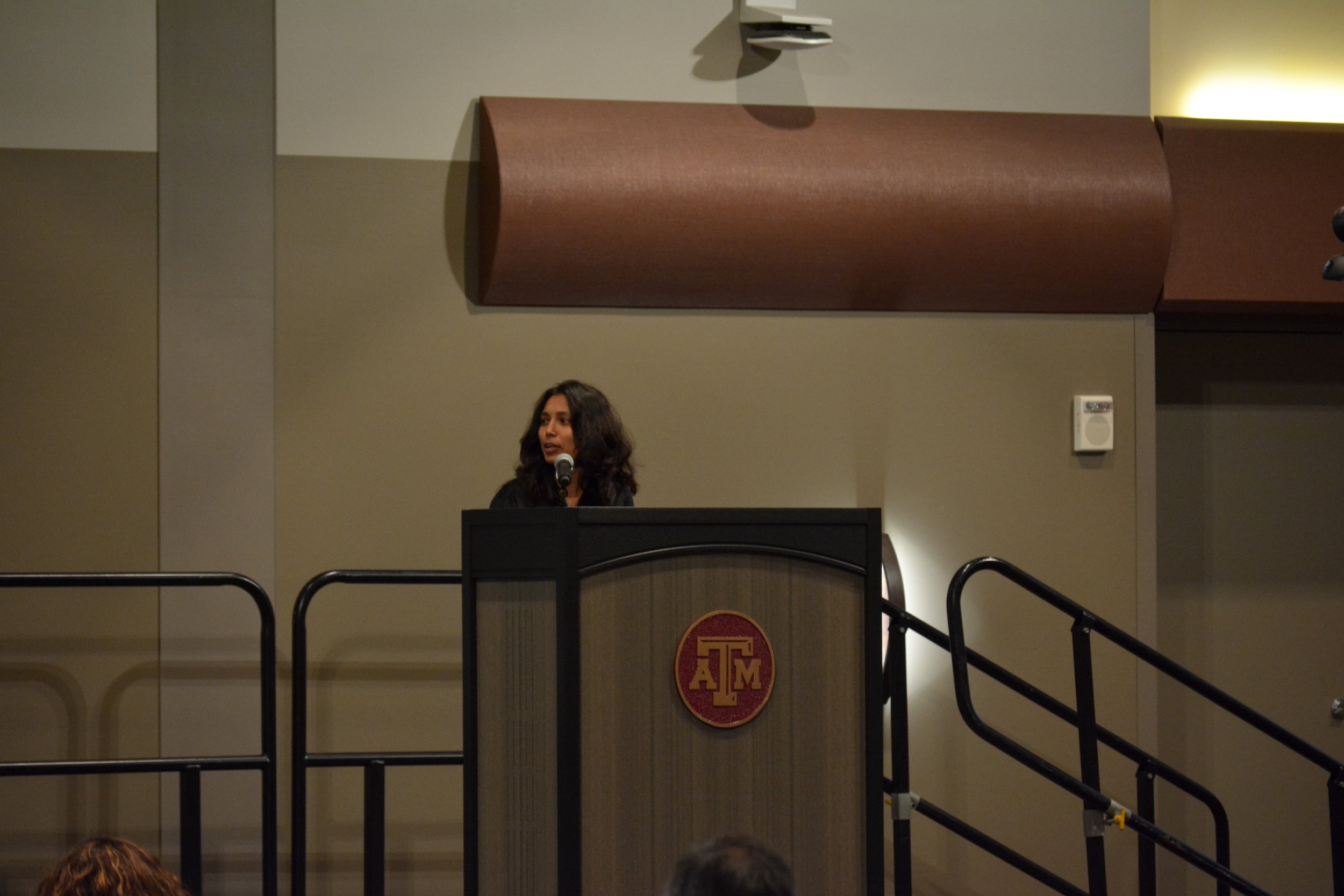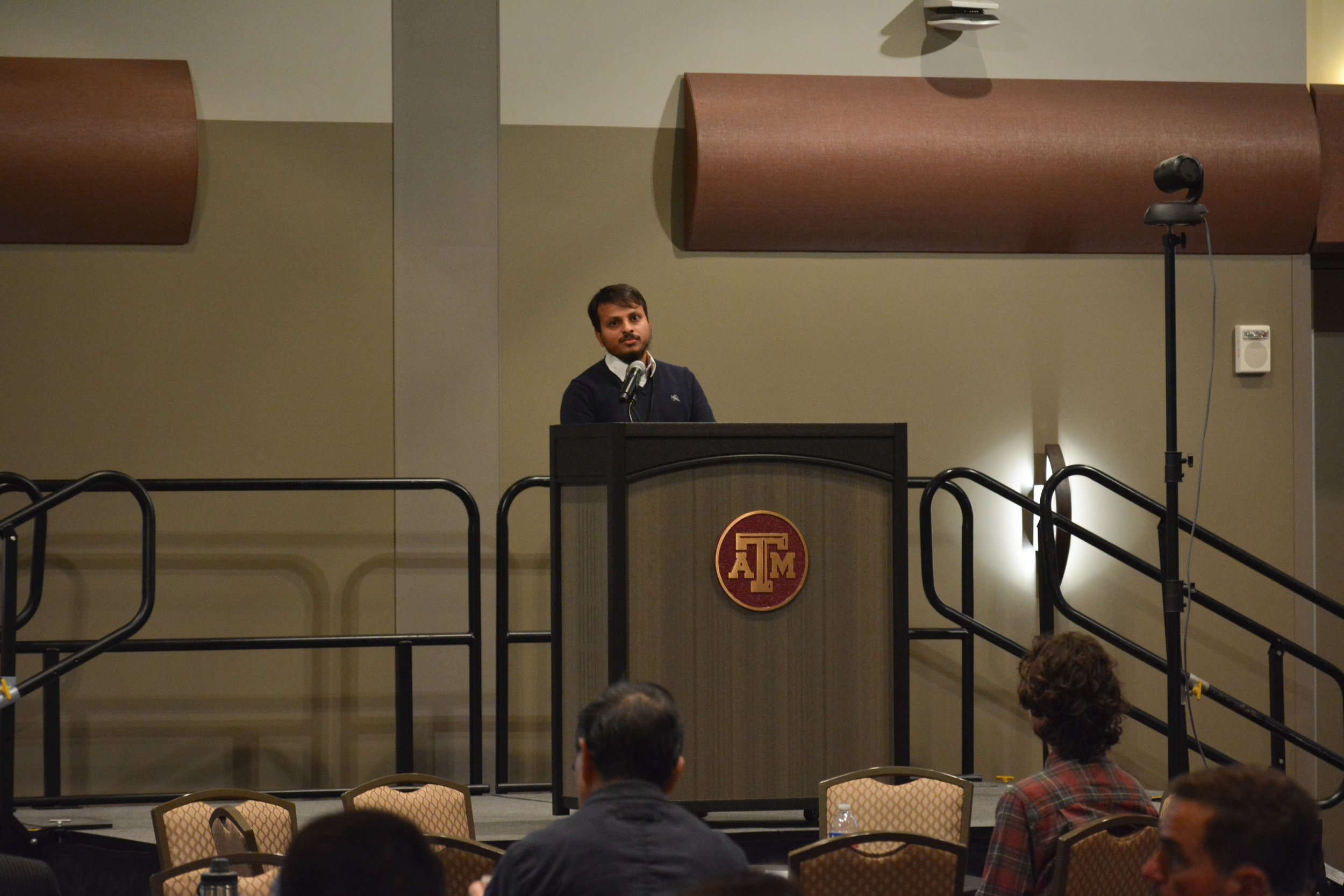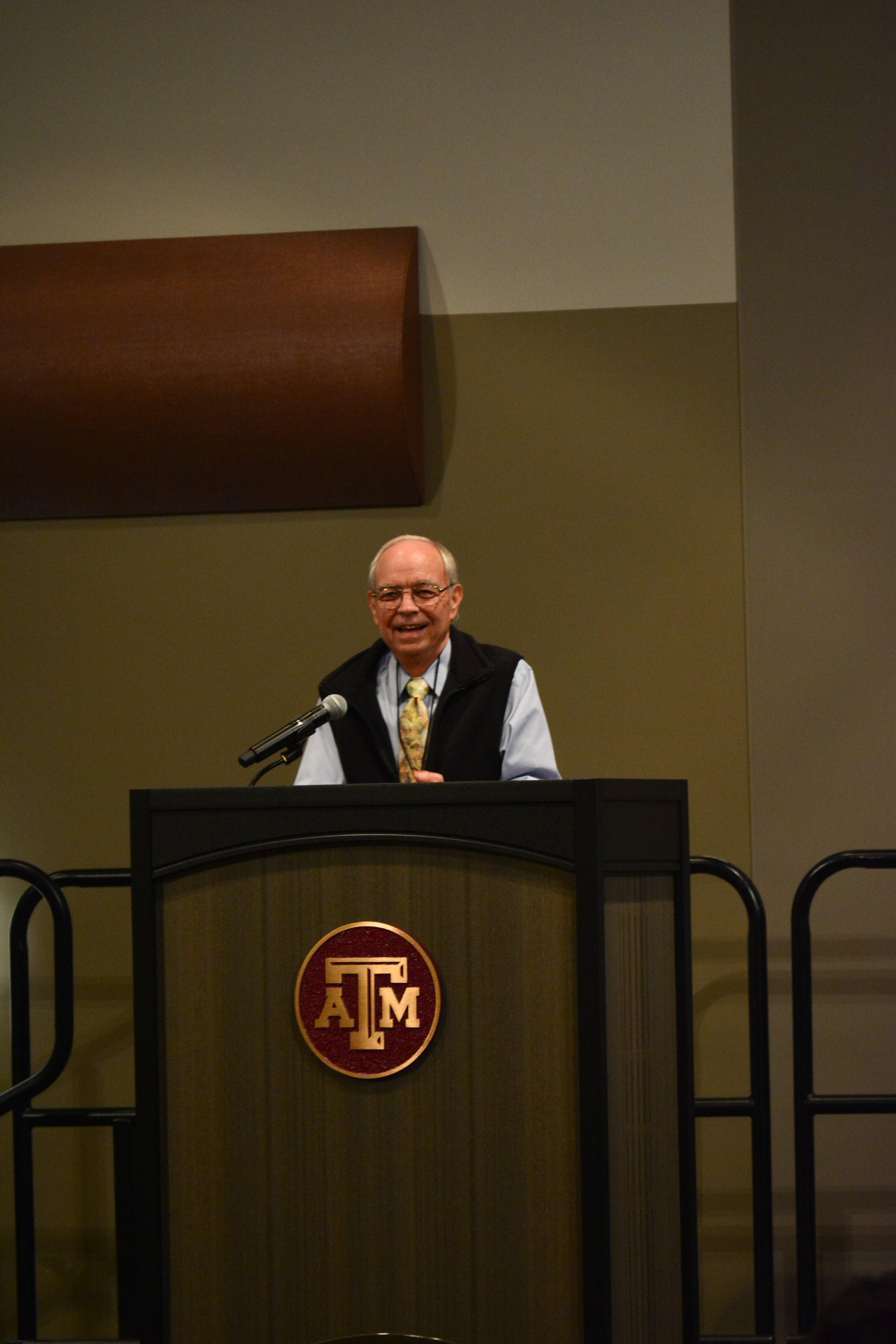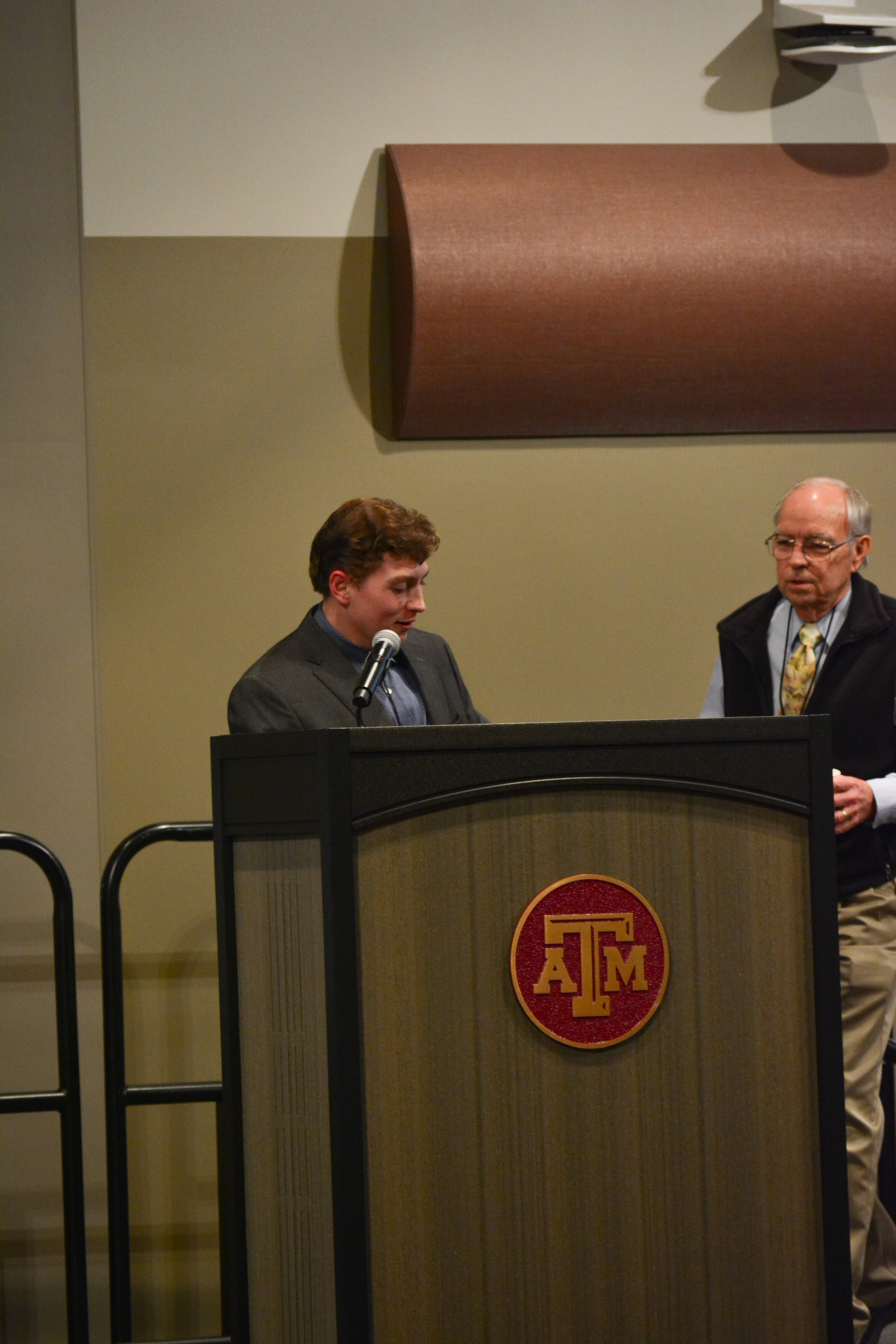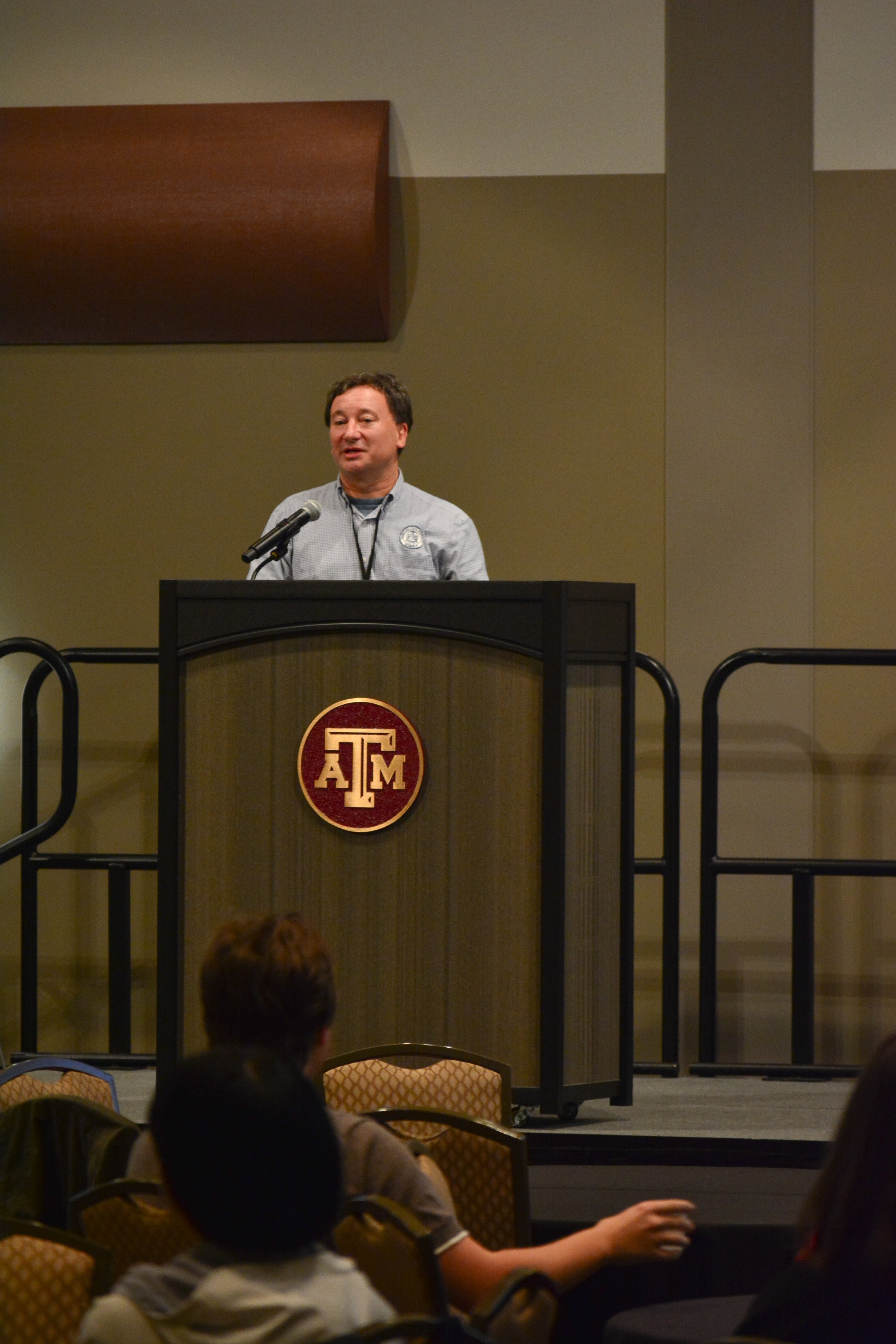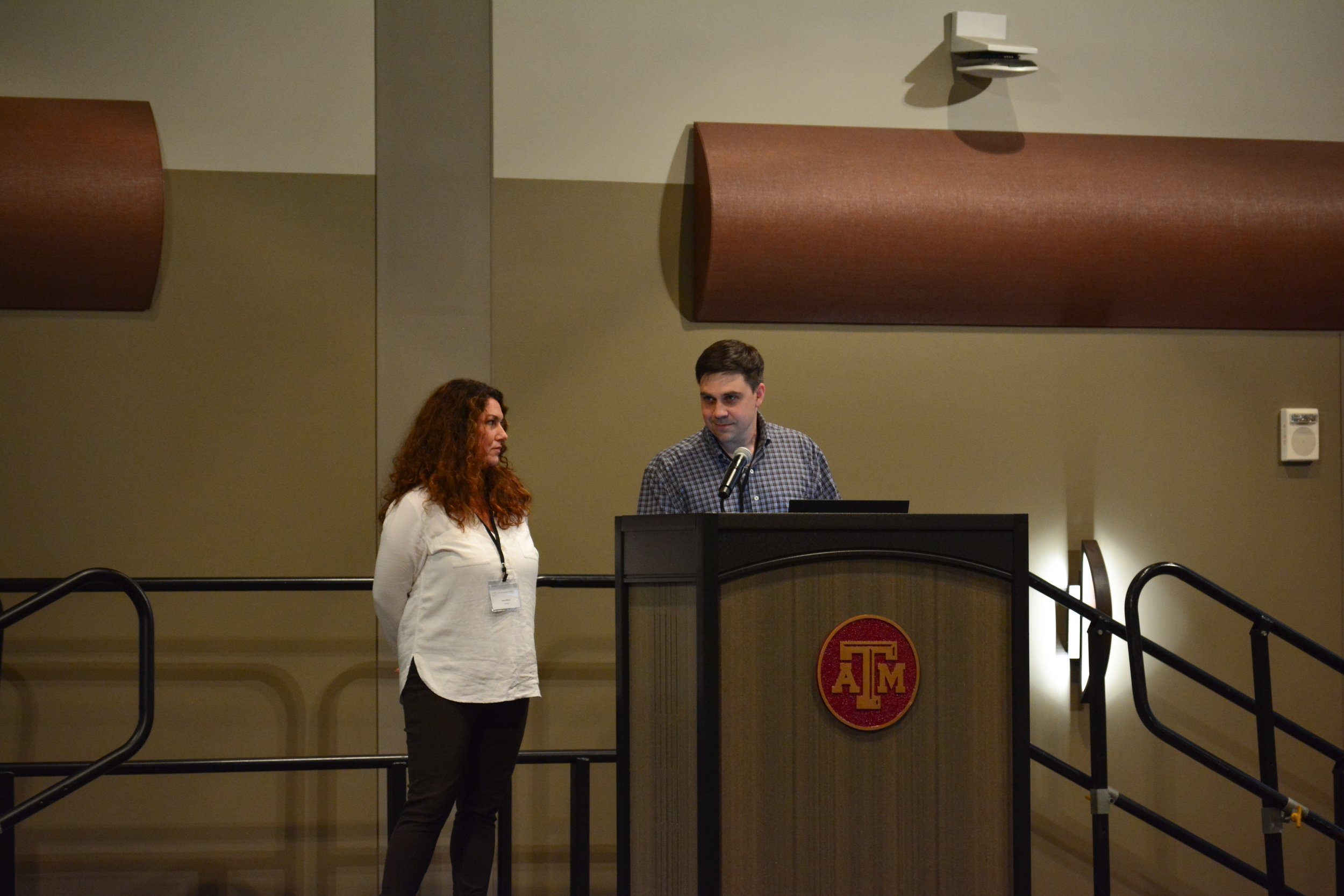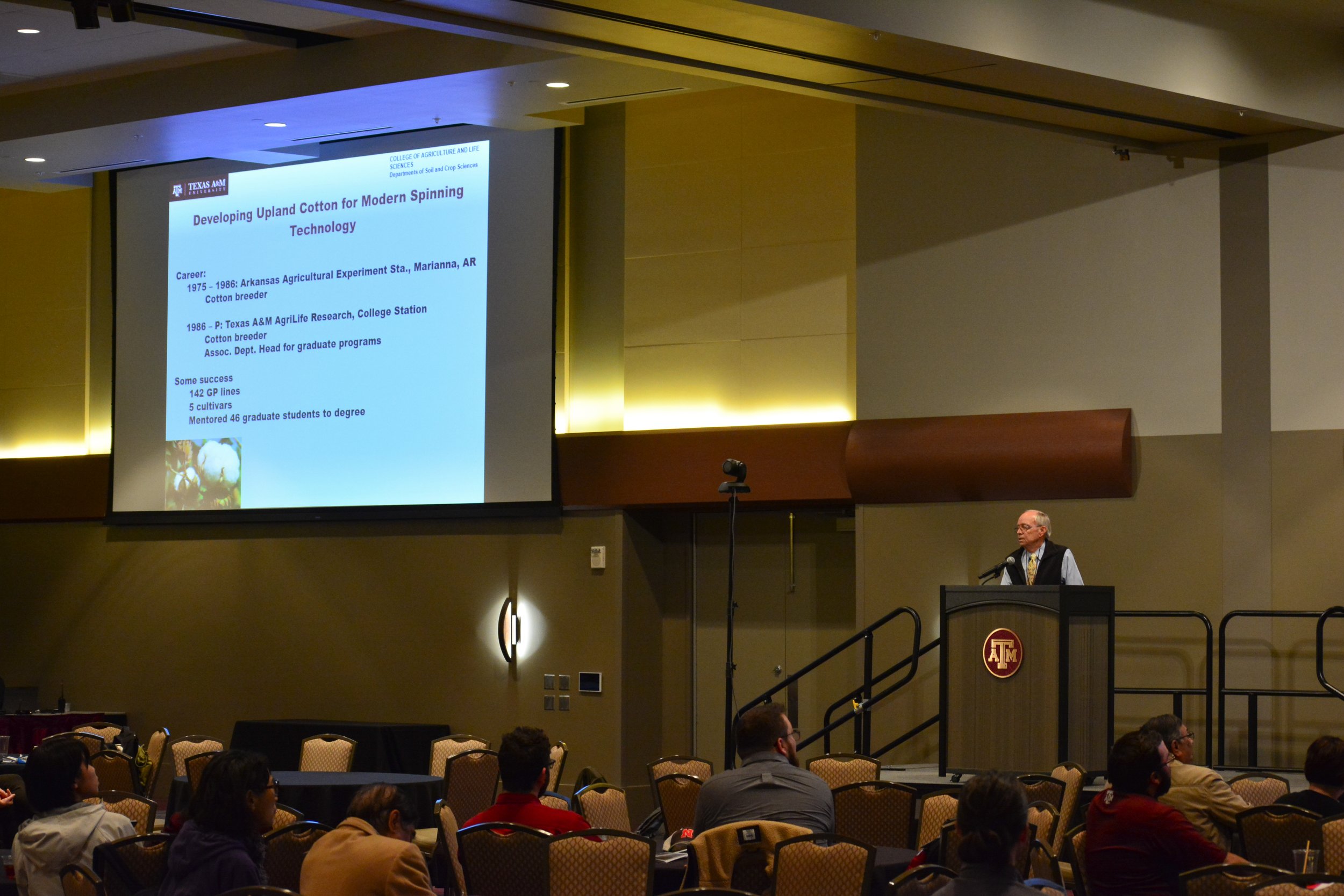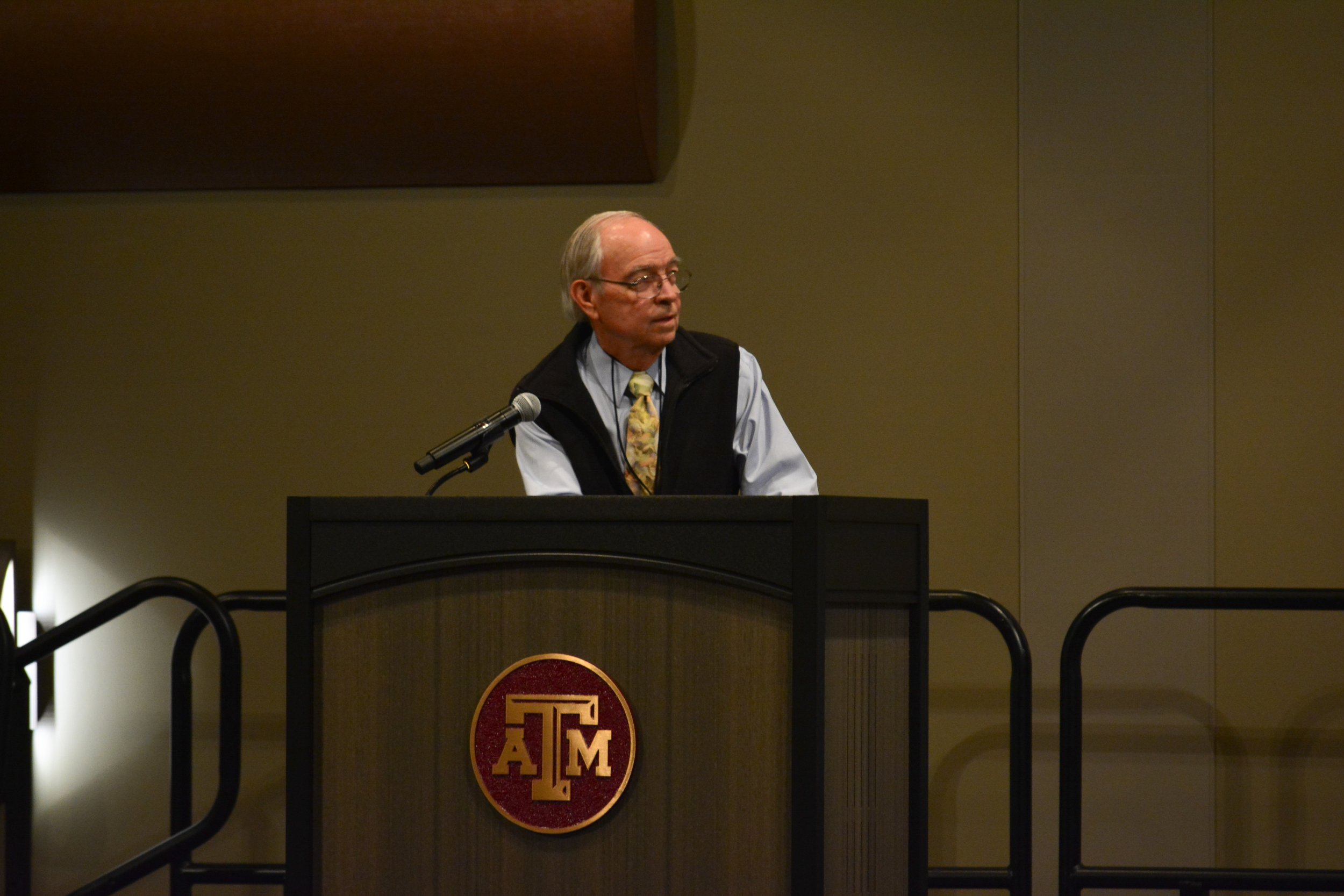10th Texas A&M Plant Breeding Symposium
Howdy! The 10th Texas A&M Plant Breeding Symposium will be held February 15th, 2024 at the Memorial Student Center on the Texas A&M campus.The theme for the 10th Texas A&M Plant Breeding symposium is "Seeding Sustainability." We will highlight research and breeding efforts on climate resilient crops, yield improvement, improved biotic stress tolerance, developing bio-fortified crop and more! Join us at the 10th Texas A&M Plant Breeding Symposium Day and unlock the sustainable future!
What to Expect
Insightful Keynote Presentations, Networking Opportunities, Hands-On Workshops, Expert’s Suggestions and Gain Practical Knowledge
Symposium Day Schedule
Keynote Speakers
Dr. LAURA MAYOR - Corteva
Laura Mayor is the Global Sorghum Breeding Lead for Corteva Agrisciences. She earned a Ph.D. in Plant Breeding from Iowa State University, an MS in Genetics, and BS in Agronomy from the University of Rosario in Argentina. She joined Pioneer HiBred as a Molecular Breeding Scientist in maize in 2008, and in 2011 she transitioned to sorghum to establish and deploy a molecular breeding strategy for this crop. In 2013, she became the sorghum breeder at the Manhattan, Kansas research center. In 2016, her responsibilities were extended to Evaluation Zone lead for eastern Kansas and the US High Plains sorghum markets, including Kansas and the Texas panhandle. In 2020, she began her current role focused on delivering elite sorghum hybrids to growers around the globe. She was named Corteva Laureate in 2021 as one of the company's singular experts. In addition, she is Division Chair for the Crop Breeding and Genetics (C1), Crop Science Society of America. Dr. Mayor is also Chair of the Sorghum Improvement Conference of North America (SICNA).
Title: Increasing genetic gain in sorghum under challenging environments
Dr.Martha Mutschler- Chu - Cornell University
Martha A. Mutschler-Chu attained her M.S. (1977) and Ph.D. (1979) in Plant Breeding/Plant Genetics from University of Wisconsin-Madison, working on breeding for bean seed protein quality. She started work as assistant professor of Plant Breeding at Cornell University 1979 and has continued to date as a full professor. During this period, she worked on fresh market tomato with a focus on breeding for control of biotic stresses that limit tomato production or harm fruit quality including insects and insect transmitted viral diseases and a range of fungal, oomycete, and bacterial diseases. The overarching goal across these biological stresses is to substantially reduce the use of pesticides and fungicides for insect and disease control. She has also worked on long-day onions, developing doubled haploid onions in collaboration with Dr. E. Earle and on resistance to Botrytis leaf blight.
Title: Breeding for Disease and Pest Resistance, and Reduction in Use of Agricultural Chemicals
Dr. Matthew W. Blair - Tennessee State University
Dr. Matthew W. Blair is a Plant Breeder and Research Associate Professor at Tennessee State University (TSU) in Nashville, Tennessee where he conducts breeding and genetics projects on legumes and dicotyledonous C4 crop plants such as cultivated amaranth. The plant genetics program goals of Dr. Blair’ lab are to have a major impact on the productivity of small-holder agriculture in the USA and internationally. The laboratory applies molecular biology research to cultivar and crop development, uses various agronomic and physiological testing techniques and plant breeding to improve crop and agronomic management in the interests of resource poor farmers. His collaborative projects have focused on nutritional traits on different crops (amaranth, common bean, cowpea and mung bean) genomics and abiotic stress tolerance (drought and aluminum toxicity) breeding of common beans. He has published nearly 200 refereed publications, 75 non-refereed publications, over 15 book chapters, 120,000 Genbank entries and 4 Crop registrations in US and International journals. He is currently the president of the Amaranth Institute and collaborates with multiple Latin American, African, Asian, European and US research groups as well as national agricultural research programs and regional networks for common bean and cowpeas.
Title: Genomics and Phenomics for Diversity Assessment and Breeding of Grain Amaranths in the United States and Overseas
Dr. Ross Welch - USDA-ARS
Dr. Welch was a plant physiologist and Lead Scientist employed at the USDA-ARS, Robert W. Holley Research Center for Agriculture and Health, located at Cornell University, Ithaca, NY until his retirement. He was also a Professor (Courtesy) in the Section of Soil and Crop Sci, School of Integrative Plant Sciences at Cornell Un. His research was directed at improving the nutritional quality and safety of food crops for humans using sustainable food-based system approaches. He was also interested in improving the nutritional quality and increasing health promoting substances (e.g., selenium, vitamin E, ascorbate) in fruits, nuts, and vegetables, and in developing holistic food system solutions to malnutrition globally. Reducing the accumulation of toxic heavy metals (e.g., Cd) in edible seeds and grains was also a research focus of his. He had cooperative international research programs with colleagues in Australia, Bangladesh, India, Nepal, Egypt, and Turkey. He also cooperated with several CGIAR Centers including IFPRI, CIAT, CIMMY, CIP and IRRI on a global project (HarvestPlus) directed at increasing the micronutrient (iron, zinc, iodine, selenium, provitamin A carotenoids) density of staple plant foods (i.e., rice, wheat, maize, beans, potato, sweet potato, and cassava) through plant breeding and genetic modification to enhance human health globally. He has published over 200 refereed journal publications.. He is a Fellow of the Am. Soc. of Agronomy and the Soil Sci. Soc. of Am. He served as an Expert China Review Team member for HarvestPlus. He is in the Science Hall of Fame (USDA-ARS) inducted in 2014 and promoted to Federal Government Super-grade, 2006. He was honored by the Brazilian Biofortification Team for being the “father” of biofortification at a ceremony in Brazil, June 2009.
Title: Why agriculture? Using Agriculture as a Tool for Better Nutrition and Health
Dr. Wayne Smith – Texas A&M University
Dr. Wayne Smith is a Professor and Associate Department Head of the Soil and Crop Sciences Department at Texas A&M university. His current research activities center around improvement of fiber quality that will expand the product portfolio of upland cotton. Dr. Smith has developed or co-developed and released 142 germplasm lines and 5 cultivars of upland cotton with improved traits such as yield potential, earliness of maturity, host plant resistance to whitefly, nematode, fleahopper, fusarium wilt and morphological traits such as smooth stems and leaves, okra leaf, glandless, sub-okra leaf, improved fiber length, improved fiber bundle strength, and elevated condensed tannin content. He developed and released the first Extra Long Staple Upland germplasm since the 1940s and probably the first extra long staple upland germplasm without pima introgression. Dr. Smith recently developed and released germplasm lines with improved fiber bundle strength exceeding all current non-acala cultivars in the United States. He has published 139 refereed journal publications, 11 book chapters, 1 book as an author, four books as co-editor, and participated in over 200 professional presentations. Dr. Smith has served on numerous National, University, College, and Departmental committees: Chair for USDA-ARS Crop Germplasm Committee, CSSA Crop Registration Subcommittee, CSSA Editor-in-chief, president National Association of Plant Breeders, and President of the USDA Plant Breeding Coordinating Committee. During his long career he received numerous awards and honors for his outstanding research.
Title: Upland Cotton for the Future
2024 TAMU Grad Student Research Competitions Winners
Serina DeSalvio
Serina is a fifth year Ph. D. candidate in the Interdisciplinary Graduate Program in Genetics & Genomics. She is in the Soil and Crop Sciences Department, guided by Dr. David Stelly in her research about recombination characterization in interspecific tetraploid cotton. Her dissertation work will hopefully provide framework for future studies in meiotic recombination in a variety if crop plants, as well as providing insights for future genetic improvement of cultivated cotton. Serina is extremely passionate about science communication and journalism, and has published several pop-science articles in The Conversation, Scientific American, and PBS Newshour. She also serves as the Genetics Graduate Student Association President and co-founded the Texas A&M podcast “Blue Genes and Boots”. In her free time, Serina loves to paint, draw, read, attend Zumba classes and ice skate.
Title: A novel and efficient method for identifying cotton leafroll dwarf virus infection in upland cotton (Gossypium hirsutum)
Pradip Sapkota
Pradip Sapkota is a Ph.D. student in the sorghum breeding and genetics lab under the supervision of Dr. William Rooney at Texas A&M University. Pradip is originally from Nepal, where he completed a B.S. in Agriculture from Tribhuvan University. He has an M.S. in Plant and Soil science from Texas Tech University. His current research focus is to strengthen predictive breeding strategies for developing sorghum hybrids by integrating phenomic and genomic data.
Title: Predicting Sorghum Hybrid Performance using Genomic and Phenomic Data
Amaka Ifeduba
Amaka is a Ph.D. student in the Department of Horticultural Sciences, at Texas A&M University under the supervision of Dr. Isabel Vales. She works as a Research Assistant in the Potato Breeding & Variety Development Program. Her research focuses on unraveling the mechanisms of heat tolerance in Potato varieties to guide breeding efforts towards the development of heat tolerant potatoes. Prior to joining Texas A&M University, Amaka earned her MS in Cytogenetics and Plant Breeding in 2021 and her BS in Plant Sciences & Technology in 2016 from the University of Jos, Nigeria. Amaka aspires to apply the knowledge she is gaining to contribute to the development of climate-resilient crop varieties to enhance their performance under challenging climate conditions.
Title: Exploring Leaf Membrane Integrity as an Indicator of Potato Heat Tolerance
2024 TAMU Undergraduate Student Research Competitions Winners
Christopher Barron
Christopher Barron is a senior at Texas A&M University from Slidell, Louisiana. He is pursuing a double major in Plant and Environmental Soil Science, Crop Science emphasis, and Biochemistry and minors in Genetics and Statistics. He is an undergraduate researcher in the Beasely Lab under Dr. David Stelly where he performs his research on cotton drought tolerance. Christopher is also the president of the Agronomy Society at Texas A&M and is an ambassador for the College of Agriculture and Life Sciences.
Title: Developing a Protocol to Assess Cotton Drought Tolerance
2024 Corteva Travel Scholarship Winner
Justin Pitts
Justin is a broadly trained plant physiologist with interests in both crop and tree species. His research is focused on the impacts of changing environmental conditions on plant function, disfunction and disease formation in hopes of better understanding their mechanisms under global climate change. Justin’s current research is multi-faceted with focus on the impacts of drought stress on coffee and peanut physiology to inform future breeding efforts. He also is studying the role that soil environmental conditions play in the formation of Aflatoxin (a known carcinogen) in peanut, with hopes of eradicating it from food systems globally.
Title: Brewing Resilience: Unraveling the Enduring Impacts of Drought on Coffee Physiology, Recovery and Detection
Sheryl N. Sierra
Sheryl current research is focused on testing genomic selection for wheat quality and evaluating the genetic gain for quality traits in hard winter wheat germplasm in Nebraska. She is interested in research related to improving challenging traits in crops using new technologies. she’s studying the important genes related to wheat quality traits and how those gene combinations could improve the quality of wheat in Nebraska. she also worked on barley breeding in the UNL small grains breeding program.
Title: Enhancing winter wheat (Triticum aestivum L.) end-use quality through molecular applications
Kajal Gupta
Kajal Gupta is from India. She completed her Bachelor of Science in Agriculture from Punjab Agricultural University. In 2023, she started her Ph.D. journey as a graduate research assistant at the School of Plant, Environmental, and Soil Sciences at Louisiana State University under the guidance of Dr. Roberto Fritsche-Neto. Her academic pursuits center around predictive breeding and image analysis. Her Ph.D. research focuses on genomic models for rice diseases using high-throughput phenotyping. Beyond academia, she finds joy in cooking.
Title: Reaction Norms on Environmental Covariates for Grain Quality Traits in Rice
Our 2024 Sponsors
We are grateful to our internal and external sponsors. Without your generous support, many of our initiatives would not be possible.
Platinum Sponsor
Corteva Agriscience
Golden Sponsors
The Department of Soil and Crop Sciences, Molecular and Environmental Plant Sciences (MEPS), Advanta Seeds, Texas A&M College of Agriculture and Life Sciences, Cotton Incorporated
Silver Sponsors
Sorghum Checkoff, Moolec, Qualterra
Bronze Sponsors
Texas A&M University Horticultural Sciences, Department of Plant Pathology and Microbiology, Texas Agriscience LLC, Texas Peanut Producers Board, Institute for Genome Sciences and Society, US Rice Producers Council and Multicrop Transformation Facility
Our Research Programs
Our plant breeding faculty rely on conventional and molecular breeding techniques to modify specific targets such as yield potential, crop quality, biotic and abiotic stress resistance, and/or reduced crop production costs.
















